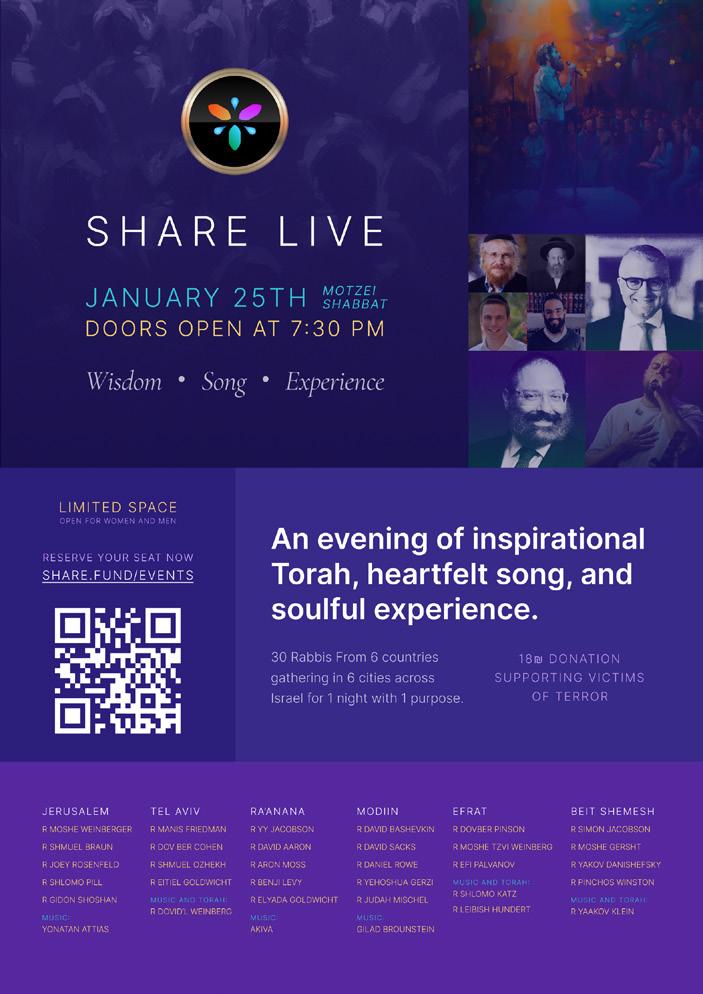








OU KASHRUT
When do Products Require Terumot and Ma’asrot?
Rabbi Ezra Friedman Page 36
PAGE BY RABBI EZRA FRIEDMAN Director, The Gustave & for Kashrut
The Double-Name Call as a Place of Healing










Rabbi Ezra Friedman Page 36
PAGE BY RABBI EZRA FRIEDMAN Director, The Gustave & for Kashrut
The Double-Name Call as a Place of Healing
Shoshana Judelman Page 70
According to Biblical law, food that is completely kosher and cooked by a nonJew is permitted. However, our Sages decreed that such food, even when cooked in kosher utensils, is prohibited for consumption. This prohibition is known as bishul akum. In the coming weeks we will discuss the parameters of this rabbinic prohibition, including the reasons behind the decree, when it applies, and the practical halacha for modern industrial kashrut.
Food is a very connecting element in every society. That is the basis behind the decree of bishul akum. Our Sages were very concerned about close relationships with non-Jews since intermarriage is a very severe transgression. The prohibition effectively limits Jews and gentiles dining with each other, although there is no specific prohibition against dining with a non-Jew per se. (See Rashi on Avodah Zara 31:b.)
Forbidding the non-Jew’s cooking would be enough to create an emotional distance such that families wouldn’t marry into each other.
Rabbeinu Tam (Tosfot Avodah Zara 38:a) and Rambam (Ma’achalot Asurot 17:9)
maintain that the issue of closeness lead to intermarriage; most early authorities. others attribute prohibition of non-Jews might ents into the kosher we will discuss bishul akum are sons or just one. numerous sources marriage is the prohibition (See
The decree is reason
Since the transgression riage was the primary Sages’ decree, their discourage the emotional connections could lead to that generation early authorities prohibition of even in situations is not technically Rashba, in his responsa the case of food that Catholic priests they have children marry, is it permitted by a priest even bishul akum seemingly

Rabbi
Rabbi
Aliya-by-Aliya
Rabbi
“Moshe
Rabbi
Rabbi
Rav Kook: Kiruv
Rabbi Aaron Goldscheider
Davening Ma’ariv “Early” on Motzaei Shabbat
Rabbi Daniel Mann
Balancing Family Values
Aleeza Ben Shalom - Shagririm Balev
The Double-Name Call as a Place of Healing
Shoshana Judelman
Roadmap to Redemption
Mrs. Leah Feinberg
The Y-Files Comic Netanel
NCSY - Torah 4 Teens by Teens
Michaela Weindruch // Yoel David
Torah Tidbits is proud to share a photo each week on the cover from our readers! It is an honor to showcase the immense talent from across the country.
Send us your best photos and give us the opportunity to highlight your story.

Everyone is invited to submit! (amateurs and professionals alike)

Please email to aarong@ouisrael.org
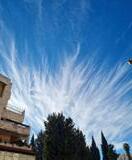
COVER IMAGE Photographed by Mordechai Freedman
This photo reminds me startlingly of the Sneh Haboer (the “burning bush”) in parshat Shemot. I took this photo near the “Shai Agnon” shul in Arnona, Yerushalayim, while on my way to shacharit one weekday morning. The clouds over these trees are Cirrus clouds (“curl of hair” clouds), and are the highest clouds formed in the atmosphere, and are made of ice crystals). They usually indicate a coming change of weather. Our family made aliya back in 1977 from LA. I was 15, and one of six children. My parents are Israeli-born (actually British Mandate Palestine). My father is a sixth-generation Yerushalmi, who passed away this year at the age of 93, z”l.
JERUSALEM
JERUSALEM
Ranges 11 days Wednesday - Shabbat
Ranges 11 days Wed–Shabbat
Aza Area (Netivot, Sderot et al)
Yerushalayim/Maale Adumim 5:49 4:49 5:43 4:42
Beit Shemesh/RBS
Alon Shvut
Raanana/Tel Mond/Herzliya/K.Saba
Be’er Sheva
/ Givat Shmuel
Rabbeinu Tam (Jerusalem): Sh’mot - 6:17PM • Va’eira - 6:24PM
All Times According to MyZmanim (20 mins before Sunset in most Cities; 40 mins in Yerushalyim and Petach Tikva; 30 mins in Tzfat and Haifa)
All Times According to MyZmanim (20 mins before Sunset in most Cities; 40 mins in Yerushalyim and Petach Tikva; 30 mins in Tzfat and Haifa)
Yomi: Sanhedrin 32
OU Israel
MITCHEL R. AEDER, PRESIDENT OF THE ORTHODOX UNION Yehuda Neuberger, Chairman of the Board, Orthodox Union | Dr. Josh Penn, OU Kashrus Commission RABBI MOSHE HAUER, EXECUTIVE VICE PRESIDENT | RABBI JOSHUA M. JOSEPH, ED.D. EXECUTIVE VICE PRESIDENT & CHIEF OPERATING OFFICER Rabbi Dr. Tzvi Hersh Weinreb, Exec. V.P. Emeritus OU KOSHER: Rabbi Menachem Genack, CEO/Rabbinic Administrator OU Kosher | Rabbi Moshe Elefant, COO/Executive Rabbinic Coordinator ISRAEL: Rabbi Yissachar Dov Krakowski, Rabbinic Administrator | Rabbi Ezra Friedman, The Gustave and Carol Jacobs Center for Kashrut Education/ Deputy Rabbinic Administrator Headquarters: 40 Rector St. 4th floor, New York, NY 10006 212-563-4000 website: www.ou.org
Editor Emeritus: Phil Chernofsky
Editor: Rabbi Aaron Goldscheider | aarong@ouisrael.org
Advertising: Ita Rochel | 02-5609125 or ttads@ouisrael.org Website: www.torahtidbits.com
Not getting enough TTs? Too many? None at all? Contact our DISTRIBUTION 050-577-2111 • ttdist@ouisrael.org
Oct x–x / x–x Cheshvan
Jan. 15 - 25 / 15 - 25 Tevet
Earliest Tallit and Tefillin x:xx–x:xx
Earliest Tallit and Tefillin 5:45-5:43 Sunrise 6:39-6:36
Zman Kriat Shema
Sof Zman Kriat Shema 9:14
Magen Avraham 8:35-8:36
Avraham x:xx–x:xx Sof Zman Tefila x:xx-x:xx (According to the Gra and Baal HaTanya)
Chatzot (Halachic Noon) x:xx–x:xx
Sof Zman Tefila 10:05-10:06 (According to the Gra and Baal HaTanya)
Mincha Gedola (Earliest Mincha) x:xx–x:xx
Chatzot (Halachic Noon) 11:48-11:51
Plag Mincha x:xx–x:xx
Mincha Gedola (Earliest Mincha) 12:18-12:21
Sunset (Including Elevation) x:xx–x:xx
Plag Mincha 3:53-4:01
Sunset (Including Elevation) 5:02-5:11
Seymour J. Abrams • Orthodox Union Jerusalem World Center • Avrom Silver Jerusalem College for Adults • Wolinetz Family Shul • Makom BaLev • Birthright • Yachad • NCSY in Israel • JLIC in Israel • Camp Dror • Pearl & Harold M. Jacobs ZULA Outreach Center • The Jack Gindi Oraita Program • OU Israel Kashrut
STUART HERSHKOWITZ, PRESIDENT OU ISRAEL Zvi Sand / Yitzchak Fund: Former Presidents, OU Israel | Rabbi Emanuel Quint z”l, Senior Vice President | Prof. Meni Koslowsky, Vice President VAAD MEMBERS:
Michael Elman | Yonatan Frankel | Yitzchak Fund | Daniella Hellerstein | Stuart Hershkowitz | Jeremy Lustman | Meir Raskas | Atara Reichel | Zvi Sand | Norman Schmutter | Mark Schneider | Esther Williams RABBI AVI BERMAN, EXECUTIVE DIRECTOR, OU ISRAEL
David Katz, CFO, OU Israel | Natan Kandler, COO, OU Israel | Chaim Pelzner, Director of Programs, OU Israel | Rabbi Sam Shor, Director, Torah Initiatives, OU Israel | Rabbi Sholom Gold zt"l, Dean, Avrom Silver Jerusalem College for Adults 7 Hartum Street, Jerusalem, 9777507 phone: (02) 560 9100 | fax: (02) 561-7432 email: office@ouisrael.org website: www.ouisrael.org
Founders and initial benefactors of the OU Israel Center: George and Ilse Falk a"h
Torah Tidbits and many of the projects of OU Israel are assisted by grants from THE JERUSALEM MUNICIPALITY

OU Israel, Torah Tidbits does not endorse the political or halachic positions of its editor, columnists or advertisers, nor guarantee the quality of advertised services or products. Nor do we endorse the kashrut of hotels, restaurants, caterers or food products that are advertised in TT (except, of course, those under OU-Israel hashgacha). Any "promises" made in ads are the sole responsibility of the advertisers and not that of OU Israel, the OU Israel Center , Torah Tidbits.

RABBI AVI BERMAN EXECUTIVE DIRECTOR, OU ISRAEL ABERMAN@OUISRAEL.ORG
Rabbi Avi Berman Executive Director, OU Israel
A while back, my son was playing a game after school, and I asked him if he was finished studying for an upcoming test. He responded, “Abba, there’s no point. With this particular teacher, no matter how much effort I put in, they’ll never give me a good grade so why bother?” I told him I would spend all the time necessary to help him prepare for this test. It took many hours and several days of studying hard together, but it was all worth it when he received his grade. To his surprise, he got over a 90 on the exam.
I’m sharing this story, dear readers, because sometimes we can all feel limited in what we can accomplish. There is no better example of this than in this week’s parsha, Parshat Sh’mot. Here, we find Moshe Rabbeinu arguing with HaKadosh Baruch Hu that he simply cannot be the leader of the
Rabbi Shor’s Shiur Discovering Meaning in Mitzvot and
Rabbi Shalom Rosner’s Shiur Appreciating the Creativity and Scholarship of the Rambam at the Rambam Kenus Shabbat, Jan 18th are sponsored by Dr. Martin & Gail Elsant in memory of Gail’s father
Sigmund N. Epstein z”l
on his 55th yahrzeit
Jewish people. Think about it. The Ribono shel Olam Himself, through a miraculously burning bush, is telling Moshe that he is the right person for the job, and Moshe still disagrees. The problem was that he couldn’t see his own potential. We know that Moshe misjudged himself, as he ultimately became the most incredible leader the Jewish people have ever had. But in the moment, he felt small, limited and incapable. Hashem pushed him to reach higher than what he thought he could achieve.
This past Moztei Shabbat, I had the great merit to be invited to the Bet Midrash Torani Leumi (BMTL) shul, which is part of an incredible community in Beit Shemesh, headed by Rabbi Chagay Raviv. It’s truly a beautiful shul, not just as a building, but the people inside who are so committed and so enthusiastic about Torah and Judaism. The event they were hosting was a beautiful melaveh malka with a great and varied array of food for those in attendance.
At this melaveh malka, I had the opportunity to talk to the community about what OU Israel does. Part of the discussion I had with them was to explain why we are so involved with Israeli teens, when ostensibly we are an organization mainly focused on olim. Why, in fact, do we have programs including the Pearl & Harold Jacobs Zula Outreach Center and run Teen Centers across Israel which are impacting mainly Israeli, Hebrew-speaking at-risk teens? The answer I shared is that there are simply not
many organizations that do what we do, who understand teens like we do, and can impact them positively like we do. Therefore, seeing how necessary it is, OU Israel has stepped into that role two and a half decades ago, and we have seen such incredible success.
I shared that we can all learn from Moshe Rabbeinu. Each of us has a little bit of Moshe Rabbeinu at the burning bush inside of us. It’s a part of us that keeps saying, “I can’t do it. It’s not for me. Maybe someone else can do it instead.” Yet, the Riboni shel Olam challenged Moshe, pushing him higher to utilize his potential, knowing that he had a role that no one else could fulfill. We, too, have to fight that uncertain and scared voice and believe in ourselves and our capabilities.
When I first arrived at the shul, I spoke with several people there. One person asked me why we run so much programming in other places in Israel, but not in Beit Shemesh. I told him I was surprised at the question, since OU Israel has many programs in Beit Shemesh. He said he could not think of a program run by OU Israel, and as someone who has lived in Beit Shemesh for decades, he was interested in understanding what the OU does in Beit Shemesh. I smiled, and asked him about the flyer on the nearby wall for the local Semichat Chaver Program (SCP). I told him this is an OU program, the brainchild of Rabbi Elyada Goldvicht currently running in over 270 communities around the world, and it started in my office in Yerushalayim.
He admitted that he didn’t know about that one, but that’s just one. So I mentioned NCSY, which has a branch in Beit Shemesh. He had forgotten about that one, but that’s just two programs, he said. I then came back with him about Yachad, which has


wonderful programming in Beit Shemesh. Three. Then I told him about our Teen Center in Beit Shemesh for at-risk youth - it’s actually one of our biggest branches in Israel. Four. Then I noted that Torah Tidbits comes to
The Ziegler Family and OU Israel invite the public to a Sheloshim Commemoration for
zt’l
Sunday January 19th, 7pm Bet Knesset Hanasi Featuring Reflections and Torah thoughts from family members, Rabbi Sam Shor and Rabbi Dr. Aaron Adler Maariv and Refreshments to follow
this shul and many other shuls in the area. Five. I told him about our Women’s Division Mother-Daughter holiday program. Six.
It was a humorous interaction, but as I told him then, there is more that we can do to increase our programming throughout Israel, including Beit Shemesh. This is actually one of our key strategic goals. We are constantly seeking expansion and growth. At the same time, we need to acknowledge and appreciate the amazing things we already do.
That conversation made me think. Why is it that the OU Israel logo is on all these event flyers and publications, and yet people still don’t realize that they are part of the OU? I think the answer is that OU has become a symbol so closely tied to kashrut that people will look for the OU symbol on their food, but then not notice it everywhere else. It’s almost like an OU symbol fatigue.
So I want to challenge you, dear Torah Tidbits readers. For the next two weeks, try to pay attention to all the OU symbols on events happening in Israel. A flyer on the wall of your shul. An announcement on social media, or just look inside these pages for what OU Israel is doing throughout Yerushalayim and beyond across Israel. If people pay more attention and realize really how much we do, I think it will inspire a lot of hakarat hatov for all the good that comes from this organization I am so proud to work for.
It’s interesting that the morning following that event, I met with Likud Knesset member Dan Illouz. Dan was born and raised in Montreal, and made aliyah when he was 23 years old. He talked to me about how he sees himself as the representative of North American-born Israelis in the Knesset. He told me how much he wants for people to
approach him to tell him about the issues in Israel he can help fix. He lives in Katamon and told me that he reads Torah Tidbits every single Shabbat, so he knows what OU Israel is doing. He also wanted us to have his ad in Torah Tidbits where he gives his phone number for anyone to call if they are looking for assistance in Israel. Please call him if you’d like him to help you, and please mention you saw the ad in Torah Tidbits.
Let’s all be a little more like Moshe Rabbeinu. Take on a little more than we think we’re capable of, because we’re often capable of more and we don’t see it. Let’s do more for our families, for the Jewish community, for Medinat Yisrael and for the world. If we believe in ourselves, we can all make a change and be leaders, and with that we will continue to rise higher.
Wishing you all an uplifting and inspiring Shabbat,

Rabbi Avi Berman Executive Director, OU Israel aberman@ouisrael.org
Dedicated in memory of our dear brother Dr. Mark Weiner
Upon their yahrzeits
By the Weiner, Miller, Solomont, & Saar families


















OU EXECUTIVE VICE PRESIDENT
Antisemitism has never been just about physical attacks on Jews. It is the great conspiracy theory, where a narrative is generated about the Jewish people portraying us as all-powerful and utterly disloyal, a combination of factors that create a climate of hatred and resentment towards us. Demonization creates the space for physical attack.
This is the original story of antisemitism described in our parsha. The Jewish people were originally welcomed to Egypt as heroes, the family of the viceroy who had saved the country from ruin, yet all the good and benefit they had brought to Egypt and its rulers was quickly forgotten. A new king arose over Egypt who did not know Yosef and who began to portray the Jewish people as all powerful and utterly disloyal (Shemot 1:8-10):
“Behold, the people of the children of Israel are more numerous and stronger than we are. Let us deal shrewdly with them lest they increase and when a war befalls us, they will join our enemies and wage war against us and depart from the land.”
This was a critical stage in the process of our Egyptian experience, the demonization of the Jews. Before a taskmaster had cracked his whip or thrown a Jewish baby in the Nile, a narrative had to be constructed to recast
the Jews as the Egyptians’ oppressors.
This is why the Pesach Haggadah cites the above verse to illustrate that which is written in the book of Devarim (26:6), vayarei’u osanu haMitzrim vayanunu vayitnu aleinu avoda kasha, “the Egyptians made us bad and afflicted us, and they burdened us with hard work.” Notice that the first phrase does not say that they did bad to us, vayarei’u lanu, but that they made us out to be bad. This recharacterization of the Jews is illustrated in the verse from our parsha cited above that does not describe the Egyptians doing bad to us but rather their creating a picture of how we were not friend but foe, scheming against them and awaiting the opportunity to actively turn on them (see commentaries of Orchos Chaim and Rashbatz on the Haggadah).
We can readily imagine how disorienting this must have been for our ancestors. One of their own had saved Egypt and transformed its economy to Pharaoh’s favor, making him the owner and master of the people, the land, and the treasure of Egypt, and now they were suddenly recast as the enemy. Their contributions to Egyptian society had been consigned to the dustbins of history and they were quickly transformed from savior to oppressor.
Improvement did not come automatically with a change of leadership, as conspiracy theories run deep, stubbornly survive, and do not simply disappear from society. The solution would come in response to the sincere prayers of Klal Yisrael. “It came to pass
in those many days that the king of Egypt died, and the children of Israel sighed from the labor, and they cried out, and their cry ascended to God from the labor. God heard their cry, and God remembered His covenant with Abraham, with Isaac, and with Jacob.” (Shemos 2:23)
This week we will welcome a new Administration in the United States. We sincerely pray that all who govern and all who reside within the American kingdom of kindness will awaken to reread the true story of America, the world, and the Jewish people, fundamentally resetting the narrative to recognize the positive Jewish contribution such that Hashem will “place in the hearts of all Americans to deal kindly with us and all Israel. In their days and in ours may the Jews be saved and Israel dwell in safety, and may the Redeemer come to Zion. Kein yehi ratzon.”














MICHAL NOAM +972-54-6108477
Michalay56@gmail.com
STUNNING! all you need in a home
and our next step will be to plant a fruit tree. I never thought of myself as being the agricultural type, but the feeling of settling and planting a portion of Eretz Yisrael, has been truly euphoric. Iy”H, when we plant our tree, and eat the fruits that will grow one day, I think we will be able to truly appreciate that unique Kedusha found in the fruit of Eretz Yisrael!
• 3 room apartment
• Quiet, near a park
• 3 full exposures
• Great location
• Elevator
• Sukkah balcony
• MM"D
• Storage room
• Private Parking
• 2 full bathrooms
• Under floor heating and A/C

To conclude, when you buy your Tu B'shvat fruit this year, don’t search for those dried apricots and banana chips imported from Turkey. Rather, head over to the fresh produce and buy yourself some nice juicy Kedusha-filled Jaffa oranges and thank Hashem for bringing you to this land in order to be able to הבוטמ
, imbibing that Kedusha in every bite that you take!!
)א:ג(

BY RABBI CHANOCH YERES RAV, BEIT KNESSET BEIT YISRAEL, YEMIN MOSHE
“And Moshe tended the flock of Yitro…and he led the flock, he came to the mountain of G-d, Horeb.” (3:1)
Why was it necessary to mention that Moshe was a shepherd and that he led (Vayinhag) the sheep, isn’t that the job of a shepherd?
Also, why is Moshe’s profession mentioned here in the pasuk when he is approaching the mountain of G-d and the scene of the Burning Bush?
The Yalkut Shimoni points out that G-d only elevates a person to leadership roles when he has displayed responsible and sensitive behavior to those under him. As David, son of Yishai, was presented in the text as a shepherd. He acted very carefully to make sure that his sheep did not eat from pastures of others. In addition, he cared for the young lambs to eat first from the soft blades of grass before allowing the rest of the flock to pasture the hard stems of the grass. G-d then announced that he, who shows sensitivity to sheep and is concerned about their feeding habits, he shall come to lead My people. So too, by Moshe. He was first tested as a shepherd. Moshe proved his ability to show empathy when he chased a little kid that escaped the flock, only to realize that the animal was just seeking water to quench its thirst. Moshe carried the kid back to the flock on his shoulders. Only then did G-d proclaim that since you have exhibited compassion in mere sheep as their shepherd, you will lead My flock, the Israelites. - Shabbat Shalom

Aliya-by-Aliya Sedra Summary
Rabbi Reuven Tradburks
RABBI REUVEN TRADBURKS
RCA Israel Region
RCA ISRAEL REGION
In memory of Evelyn Rivers a”h
Mother of Reuven Tradburks
The Jewish people are in Egypt. A new Paro is concerned with the size of the Jewish people. He decrees hard labor, infanticide and then actively drowning the male babies. Moshe is born, raised in Paro’s daughter’s home. After seeing the Jews mistreated, Moshe flees to Midian, marries and settles there. At age 80, Moshe encounters the burning bush. G-d instructs him to go to Paro and demand, in G-d’s name, to free the Jewish people. Moshe, after attempting to refuse this mission, goes to Paro. Paro increases the burdens. The people complain.
70 Bnei Yisrael descend to Egypt. They grow exceedingly numerous, filling the land. A new king who knew not
May the Torah learned from this issue of Torah Tidbits be in loving memory of and נ”על
Miriam Ansel a’h
on her 1st Yahrzeit -
Dearly missed and always in the thoughts of her children, grandchildren and great-grandchildren
Yosef arises. Afraid that the Jews would join with enemies of Egypt, he seeks to weaken their numbers. A labor tax is followed by oppressive labor. Then the midwives are instructed to kill the Jewish babies. The midwives fear G-d and do not heed Paro’s directive.
The book of Shemot, of Exodus, is radically different from Bereshit. Bereshit was the story of people: Avraham, Yitzchak and Yaakov, Sarah, Rivka, Rachel and Leah. Then Yosef and his brothers. And overlaid to the story of people is the Divine refrain, “I give to you the land promised to Avraham”. It is almost like a song with a chorus; each person is the verse, with the chorus of G-d’s promise of the land repeated. Avraham and his life, with G-d’s promise repeated. Yitzchak and his family, with G-d’s promise repeated. Yaakov and then the Yosef story, with G-d’s promise repeated. In Bereshit the people are center stage, with G-d ever present but of few words; the repeated promise.
In Shemot G-d and man switch places. It is the story of Divine control of Jewish destiny. He is the Main Director, the Jewish people the mere stage actors. He no longer lurks, with repeated promises. He acts, dominates, controls, manipulates. He initiates, communicates, and commands. Later, at Sinai, He reveals Himself.
But His appearance begins only when we hit bottom.
Paro acts to weaken the Jewish people. Vicious actions, including murder. The
midwives fear G-d, refuse to murder. There is no mention of G-d’s actions. We have seen this before. G-d’s name is absent from the sale of Yosef, as it is here. Spiraling downward we can do on our own. Man does a mighty fine job of cruelty all on his own. G-d appears when we hit bottom.
2ND ALIYA (1:18-2:10)
The midwives defend their actions to Paro. Paro commands all Jewish baby boys to be thrown into the river. Moshe is born, placed in the water in a basket. Paro’s daughter rescues him. Miriam arranges for Moshe’s mother to nurse him. He is returned to Paro’s daughter and named Moshe.
When Moshe is born his mother “saw that he was good”. And he was placed in the water, albeit in a basket. Those 2 elements, water and “it was good”, immediately remind us of the first day of creation. In the beginning “the spirit of G-d hovered over the waters” (Genesis 1:2). And when light was created, “G-d saw the light and it was good.” Moshe’s being placed in the water and his mother “saw that he was good” could be the Torah’s way of saying there is a new creation story taking place: with Moshe’s birth, a new world dawns for the Jewish people.
The story of Moshe’s rescue is in stark contrast to Yosef’s sale. Yosef is thrown into a dry pit that has no water; Moshe is thrown into the water but remains dry. Yosef’s brothers move away from the pit; Moshe’s sister stays close to see what happens. Yosef’s brothers didn’t respond to his cry; Paro’s daughter hears Moshe’s cry. Yosef’s brothers do not bring him home to his father; Moshe’s sister brings Moshe home to nurse with his mother. Parallel stories; radically different.
3RD ALIYA (2:11-25)
Moshe matures. He goes out to see the travails of his brothers. He defends a Jew by killing his Egyptian aggressor, and then saves a Jew from a Jewish aggressor. He flees for his life to Midian, aids Yitro’s daughters, is welcomed by Yitro, marries Zipporah, has a child Gershom. “For I am a stranger in a strange land”. G-d sees the suffering of the Jews and remembers His covenant.
The reversal of the sin of the brothers continues: the brothers did not see the suffering of their brother, Moshe wants to see and relieve the pain of his brothers.
Moshe names his son Gershom, for “I am a stranger”. Which strange land is he referring to? Being a Jew in Egypt? Or being an Egyptian in Midian? Where is Moshe’s home?
The story to this point is the story of people; G-d has yet to appear. In a world without G-d’s presence, there are good people and bad people. Paro, evil. Midwives, good. Moshe’s parents, brave. Paro’s daughter, good. Moshe’s sister, concerned. Egyptian slave master, cruel. Jews struggling, violent. Yitro, welcoming.
And Moshe? Goes out. Concerned. Helps those who need help. Feels angst; a stranger. G-d appears. His name appears 5 times in 3 verses. Everything changes now. Or perhaps not. All the human activity to this point; has He orchestrated it, or is it people doing what people do? Some good, some not? Or mere puppets in the Hand of the Puppeteer?
4TH ALIYA (3:1-15)
Moshe and the burning bush. Moshe, Moshe, Hineni. G-d speaks, Moshe cowers. G-d tells him: I have seen the suffering of My people. I will save them from
Egypt and bring them to the Land of milk and honey. I am sending you to go to Paro and he will release My people from Egypt. Moshe objects: who am I to go to Paro? And the Jewish people will question who sent me. G-d says: tell them the G-d of their forefathers, Avraham, Yitzchak and Yaakov sent you.
The entire story of the Torah changes here. G-d moves from the unseen force behind human action to directly dictating human activity. He tells Moshe that He will take the Jewish people out of Egypt and bring them to the Land of Israel. Up until now, the Jewish people have been promised the Land but have lived only with the promise, not with its fulfillment. They have not seen the Hand of G-d but have rather detected it behind the events. As Yosef said “G-d has brought me to Egypt to save the family.” He never heard that. He peered behind the veil and detected it.
Now the veil is drawn. Moshe is told in vivid detail exactly what will transpire. The Jews will be sent out by Paro. The story of the Exodus from Egypt is a pillar of Jewish belief because it is a blatant, direct display of G-d’s Hand in our history. It is His Hand in full display, not behind the veil.
5TH ALIYA (3:16-4:17)
G-d continues: Gather the people. Tell them that I will take them to the Land. They will listen. Go to Paro. I know he will not listen. I will smite the Egyptians. You will be loaded with gold, silver and clothing from the Egyptians. Moshe is still convinced that the people will not believe him. G-d gives him signs: staff turns to snake and then back, hand turns leprous and then back. And water to blood. Moshe objects: I am not a good speaker. G-d says: I give speech to man. I will send Aharon with you. He will
speak. Take your staff.
Moshe’s reluctance is striking. Avraham did not demur from a pretty rough command to sacrifice his son. Noach didn’t either when given a command that would bring derision. Moshe is a very begrudging leader. But that itself is instructive. Moshe is not a man driven by a mission, a great, charismatic leader who leads his people from oppression to freedom, displaying the power of human will in the face of injustice. And after all, he is 80, a rather late start on leading his people.
The charismatic leader leading his being from slavery to freedom would be a great story. But it is not our story. Our story is of the Divine Hand guiding human events through a reluctant leader. This is not Moshe’s story. It is the Divine’s. And even that great refrain “let my people go” is not Moshe speaking. It is rather “let My people go”. It is Moshe quoting G-d to Paro – he is but the messenger.
6TH ALIYA (4:18-31)
Moshe gets Yitro’s blessing to return to Egypt. G-d tells Moshe that those seeking his death have died. G-d tells him to tell Paro: G-d says Israel is my first born. Send out My son, for if you do not, I will slay your first born. Zippora circumcises her son. Aharon greets Moshe. They gather the people. The people believe that G-d will redeem them.
G-d adds one more thing to Moshe; Israel is My first born. As if to say – “Moshe, this is a story of love. I view the Jewish people as my beloved first born.” And. Refusal by Paro will result in Divine punishment. Our western ethos is uncomfortable with these central principles of Judaism: G-d’s Hand in history, G-d’s love for the Jewish people, and Divine punishment. As Rabbi Sacks, z”l, said;
Radical then. Radical now.
7TH ALIYA (5:1-6:1)
Moshe and Aharon approach Paro, requesting a 3-day journey to the desert to celebrate. Paro refuses. He increases the workload. Conflict arises between the Jewish workers and the Egyptian supervisors. The Jews criticize Moshe for increasing their burden. Moshe complains to G-d. G-d reassures him that through a strong hand, Paro will send them out.
What a great lesson: even when G-d Promises, don’t think it is all clear sailing. His promises run smack into the uncomfortable reality of human beings. The plan for the Jews to leave runs into the reality of Paro and his resistance. Paro derails the plan, at least in part. That is the lesson: man meanders as the Divine plan unfolds, up and down, forward and back. But resistance need not dull the end. The end will come. Maybe later than sooner. But a Promise is a Promise.
YESHAYAHU 27:6-28:13; 29:22-23
This week’s haftorah parallels the week’s Torah reading on many levels. One of the parallels is the message of redemption conveyed by Yeshayahu—“and you shall be gathered one by one, O children of Israel”— that is reminiscent of the message of redemption that G-d spoke to Moses at the burning bush, a message that Moses then communicated to Pharaoh. The haftorah vacillates between Yeshayahu’s prophecies concerning the future redemption, and his admonitions concerning the Jews’ drunken and G-dless behavior. Yeshayahu starts on a positive note: “In the coming days,
Jacob will take root, Israel will bud and blossom, filling the face of the earth . . .” He mentions Hashem’s mercy for His nation, and the measure-for-measure punishment He meted out upon the Egyptians who persecuted them. And regarding the future redemption: “You shall be gathered one by one, O children of Israel. And it will come to pass on that day that a great shofar will be sounded, and those lost in the land of Assyria and those exiled in the land of Egypt will come, and they will prostrate themselves before the L-rd on the holy mount in Jerusalem."
The prophet then proceeds to berate the drunkenness of the Ten Tribes, warning them of the punishment that awaits them. “With the feet they shall be trampled, the crown of the pride of the drunkards of Ephraim . . .”
The haftorah ends on a positive note: “Now Jacob will no longer be ashamed, and now his face will not pale. For when he sees his children, the work of My hands, in his midst, who shall sanctify My name . . . and the G-d of Israel they will revere."
STATS
13th of 54 sedras; 1st of 11 in Shemot.
Written on 215.2 lines in a Torah (18th). 7 parshiot; 6 open, 1 closed.
124 pesukim - 15th (tied with Emor).
1763 words - 14th (Emor: 22nd).
6762 letters - 16th (Emor: 23rd).
2nd in Shemot in those three categories.
1558 words - ranks 24th. MITZVOT
No mitzvot are counted from Shemot. One of 17 sedras without mitzvot.

BY RABBI DR. TZVI HERSH WEINREB OU EXECUTIVE VICE PRESIDENT, EMERITUS THE
BY RABBI DR. TZVI HERSH WEINREB OU EXECUTIVE VICE PRESIDENT, EMERITUS
We know him as Moshe Rabbenu, Moses our Master, Moses our Teacher, Moses our Master Teacher. Such a title certainly tells us a great deal about Moshe and qualifies him for the title “Person in the Parsha.”
But is it his name, given to him by an Egyptian princess, that grants him the role of this week’s central personality? I think not.
Do the titles “master” and “teacher” themselves affirm that he is larger than life, an individual forever of central importance, beginning with the events described in this week’s Torah portion, Shemot (Exodus 1:16:1), and continuing to this very day?
I prefer to believe that it is the suffix of the word “Rabbenu,” the “nu” which means “our,” that makes Moshe special. He is “our” master, “our” teacher, the outstanding personage of the Jewish people. In a sense, he
May the Zechus of the Learning from this week’s Torah Tidbits be an Aliyas Neshama for
is the property of the faith of Judaism, to the exclusion of other faiths and other nations.
True, he is revered by our “sister” religions and is honorably mentioned in their sacred writings. For other faiths, he is a prophet, a hero, perhaps even a “saint.” But he is not their teacher, not their masterful authority figure. The Torah, the comprehensive guide to every aspect of our lives as Jews, is Torat Moshe. The Torah is our guide in life, and Moshe is our shepherd.
Many of us are not aware of the fact that Moshe has been claimed by non-Jews besides the other Abrahamic religions. His very identity as a Jew, an Israelite, has been challenged from many directions. It has been maintained by many who argue that he was an Egyptian, a prince of Egypt, who sought further power and a loftier position of leadership by aligning himself with the enslaved Israelites.
Such arguments were advanced in ancient times and persisted in recent generations in German literature and in Hollywood productions.
One fascinating argument for Moshe’s non-Jewish origins was advanced by a famous Jew who had his own bone to pick with religion in general and with Jewish religion in particular. I refer to Sigmund Freud, the father of psychoanalysis, and the author of Moses and Monotheism.
Freud published this work later in his life, when his influence and fame were at their peak, and it met with approval from many
quarters. It also met with a cascade of criticism and vociferous opposition from defenders of the Jewish faith, those who insisted that Moshe was Rabbenu, “our” teacher.
One such critic was a mid-twentieth century writer named Chaim Greenberg (1889-1953). Greenberg was a Labor Zionist activist and prolific writer who was among the most severe critics of the American Jewish community’s response to news of the Holocaust. Although some of his many writings have been translated into English, I possess a multi-volume collection of his Yiddish essays that I find very perceptive, and that express many traditional Jewish values in a manner which only the Yiddish language can fully capture.
Greenberg wrote a searing rebuttal to Freud’s thesis in 1939, going so far as to mock it as nonsense. I do not know whether his rebuttal had any great impact upon the rest of the world, which was then distracted, to say the least, by the rise of Nazism. But I do know that many Jews were grateful to Greenberg for demolishing Freud’s contention that not only was Moshe an Egyptian, but that monotheism itself had its origins in ancient Egyptian culture.
I imagine that many Jews were then quite pleased that Greenberg’s rebuttal issued from a distinctly non-rabbinic source, from a Labor Zionist publicist with impeccable secular credentials. I should add that my readings of Greenberg’s many works have led me to admire his Yiddishe neshama and thorough familiarity with a wide range of traditional Torah sources.
The rebuttal to which I refer is included in Greenberg’s collection of essays entitled Yid un Velt (“The Jew and the World”). The





title of the essay is “Moshe Rabbenu Foon Der Gantzer Velt” (“Moses Our Teacher of the Entire World”). Note the implication that although Moshe had universal impact, he remained Rabbenu, “our” teacher.
But the essay’s title comes from a long-forgotten Yiddish nursery rhyme, which translates as follows:
Moshe Rabbenu of the entire world (velt), Throw me down a small sack of money (gelt).
What will you do with the small sack of money?
I will buy myself a little wagon. What will you do with the little wagon? I will load it with little pebbles. What will you do with little pebbles?
I will build myself a little shul. What will you do in the little shul? I will daven Mincha and Maariv!





City Center Haneviim Court
Beautiful Building, 90 SQM, spacious, Bright, Shabes elevator, 2 Balconies, completely furnished high level ,Stunning straight View to Har Habait.place for Sukah, Guard 24/7, Private Parking.


The meaning of this childlike poem is quite clear. The child conceives of Moshe as simultaneously “our” Teacher and the Teacher of the entire universe. But he carries within his pure and innocent soul the conviction that the ultimate “universe” is the little shul and the Jewish evening prayers!
My experience as a child psychologist has led me to take children’s songs, nursery rhymes, and fairy tales quite seriously. But the long-forgotten song I just shared with you is merely the opening of Greenberg’s long-forgotten essay.
Nachlaot
2 Divided Units, Accesible and private entrances, Renovated and Furnished, Opportunity for investment. Baka


4.5 Rooms, Signed for Pinuy Binuy. New property will be 124 SQM + balcony, parking, Storage. Fantastic location. City Center New building Excellent location
3 Room + Balcony High level Totally furnished.

Renner
The most Luxurious Building Jerusalem Spirit
Spacious 4 Room Property, 3 Bedrooms, 3 full Bathrooms, Breathtaking View to Gan Haatzmaut and Har Habait. Parking, Storage, Guard 24/7, Gym and Pool.
After commenting with his own sense of pride in the Jewish Moshe Rabbenu, he shares this comment from the works of the greatest of all Jewish poets, Rabbi Yehuda HaLevi. Here is what he writes, in my own inadequate translation from his lucid and vibrant Yiddish:
“How did Rabbi Yehuda HaLevi put it so many centuries ago? He insisted that Israel received its place in world history not thanks to Moshe Rabbenu. Quite the contrary— Moshe Rabbenu became great because of Israel! Therefore, Jews refer to themselves not as Moshe’s people, but as God’s people.
“Moshe alone, without a people prepared to accept the Torah and travel with him to Mount Sinai, would never have become Moshe Rabbenu! His teachings would have been neglected and forgotten by world history.”
Moshe owed his glory to the Jewish people who followed him into the desert and who follow him to this day. Therefore, the Jewish people “own” him. He was, and remains, Rabbenu— “our” teacher.
Indeed, “Torah tziva lanu Moshe, morasha Kehilat Yaakov. The Torah Moshe commanded us is the heritage of the Congregation of Yaakov”. (Deuteronomy 33).
parents whose yahrtzeits are
been memorialized in a popular song, "An eternal people does not fear the long and arduous path."
Weinberger
Max Weinberger z”l
Greatly missed by their children, grandchildren and great grandchildren
Rav Aryeh and Dvora Weinberger
Bernie and Leah Weinberger Menachem and Hannah Katten
Patience is necessary for those who follow Isaac's way. But a wise woman taught us that patience is but another name for hope. That woman was Jane Austen, who put these words into the mouth of one of the characters in her great novel, Sense and Sensibility: "Know your own happiness. You want nothing but patience—or give it a more fascinating name: call it hope."
In observance of the Shloshim of our friend Yehuda Leib Berren z"l
Rav Menachem Weinberg will give a shiur in his memory "Heroic Joy"
Monday evening, 23 November/ 8 Kislev 7:30pm
Zoom Meeting: 853 8980 1519
Password: Yehuda




LEG TIPS for quieter chairs & helps to prevent water damage to the legs
If your cherished furniture holds memories, let us repair it with care instead of replacing it


Our dedicated English-speaking team will ensure a smooth, stress-free transfer. Join Maccabi, one of Israel’s top healthcare providers, and receive step-by-step guidance in English for a seamless experience. With 90% of Maccabi doctors being specialists and exclusive access to UPAPP, a popular fitness app offering a variety of health and fitness activities, you’re in expert hands.
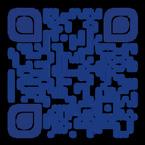






JERUSALEM - BAYIT VEGAN
New luxury Building, 4 rooms, 105 sqm, Balcony 11sqm, Sukkah, Parking, Amazing view, Tramway 3.980.000 NIS

RAMAT SHARET - BAYIT VEGAN
Magnificent Unique House, 320 sqm, 10 rooms, 2 rentals units, View Outdoor 100 sqm, Sukkah, Parking 9.990.000 NIS

BAYIT VEGAN - BEIT HAKEREM
Cottage Duplex, 8 rooms, 208 sqm, Rental unit, Wonderful Terrace, Amazing view, Sukkah, Parking, 6.450.000 NIS


THOUGHTS ON THE WEEKLY PARSHA
Thoughts on the Weekly Parsha
RABBI LORD JONATHAN SACKS ZT"L
RABBI LORD JONATHAN SACKS ZT"L
FORMER CHIEF RABBI OF THE UNITED HEBREW CONGREGATIONS OF THE COMMONWEALTH
FORMER CHIEF RABBI OF THE UNITED HEBREW CONGREGATIONS OF THE COMMONWEALTH
May the learning of these Divrei Torah be
HaRav Ya'akov Zvi ben David Arieh
Moses’ second question to God at the Burning Bush was, 'Who are You?'. He asks God in the following way:
“So I will go to the Israelites and say, ‘Your fathers’ God sent me to you.’ They will immediately ask me what His name is. What shall I say to them?” (Ex. 3:13)
God’s reply, Ehyeh asher ehyeh, wrongly translated in almost every Christian Bible as something like “I am that I am,” deserves an essay in its own right.1
Moses’ first question, though, was, Mi anochi, “Who am I?”
“Who am I that I should go to Pharaoh?”
1. I expand on this within my books Future Tense and The Great Partnership.
Under 75? Not too late To get Private Health Cover For serious medical issues
NOT covered by Kupat Cholim

054-4258671 | NormanZ@shaham-orlan.co.il
said Moses to God. “And how can I possibly get the Israelites out of Egypt?” (Ex. 3:11)
On the surface the meaning is clear. Moses is asking two things. The first: who am I, to be worthy of so great a mission? The second: how can I possibly succeed?
God answers the second. “Because I will be with you.” You will succeed because I am not asking you to do it alone. I am not really asking you to do it at all. I will be doing it for you. I want you to be My representative, My mouthpiece, My emissary and My voice.
God never answered the first question. Perhaps in a strange way Moses answered himself. In Tanach as a whole, the people who turn out to be the most worthy are the ones who deny they are worthy at all. The Prophet Isaiah, when charged with his mission, said, ‘I am a man of unclean lips’ (Is. 6:5). Jeremiah said, ‘I cannot speak, for I am a child’ (Jer. 1:6). David, Israel’s greatest king, echoed Moses’ words, ‘Who am I?’ (II Samuel 7:18). Jonah, sent on a mission by God, tried to run away. According to Rashbam, Jacob was about to run away when he found his way blocked by the man/angel with whom he wrestled at night (Rashbam to Gen. 32:23).
The heroes of the Bible are not figures from Greek or any other kind of myth. They are
not people possessed of a sense of destiny, determined from an early age to achieve fame. They do not have what the Greeks called megalopsychia, a proper sense of their own worth, a gracious and lightly worn superiority. They did not go to Eton or Oxford. They were not born to rule. Instead, they were people who doubted their own abilities, who became heroes of the moral life against their will. There were times when they felt like giving up. Moses, Elijah, Jeremiah and Jonah reached points of such despair that they prayed to die. But there was work to be done – God told them so – and they did it. It is almost as if a sense of smallness is a sign of greatness. So God never answered Moses’ question, “Why me?” but over time the answer revealed itself.
Still, there is another question within the question. “Who am I?” can be not just a question about worthiness. It can also be a question about identity. Moses, alone on the mountain, summoned by God to lead the Israelites out of Egypt, is not just speaking to God when he says those words. He is also speaking to himself. “Who am I?”
There are two possible answers. The first: Moses is a prince of Egypt. He had been adopted as a baby by Pharaoh’s daughter. He had grown up in the royal palace. He dressed like an Egyptian, looked and spoke like an Egyptian. When he rescued Jethro’s daughters from some rough shepherds, they went home and told their father, “An Egyptian saved us” (2:19). His very name, Moses, was given to him by Pharaoh’s daughter (Ex. 2:10). It was, presumably, an Egyptian name (in fact, ‘Moses’, as in ‘Ramses’, is the ancient Egyptian word for “child”. The etymology given in the Torah, that Moses means “I drew him from


Jerusalem Real Estate is My Business Eta: 054-723-3863
Amazing stand alone homes in OLD KATAMON, TALBIYA, BAKA, GERMAN COLONY
CASPI STREET/ARNONA. 127 sqm 5 rooms, small Sukka terrace, 2 large storage rooms. Shabbat Elevator and shared parking. Central A/C. 6,600,000 NIS
MUSRARA. Beautiful original Jerusalem home 185 sqm, completely renovated. Private entrance into magical garden. Sold with a renovated unit used for AirBnB. Parking spot option. 7,400,000 NIS
In GERMAN COLONY. 300 sqm plus 170 sqm reg garden. Plus parking & roof top terrace. 18.000,000 NIS
180 sqm Penthouse on an exclusive street in ARNONA. 40 sqm balcony, registered parking. Very high standard finish. 9,800,000 NIS




Theatron Hotel and Residences. TALBIYA 9 apartments left for sale. Call for more details.




Eta Morris Realty, Ltd. etamorrisrealestate@gmail.com Eta: 054-723-3863 etamorrisrealty.co.il
the water,” tells us what the word suggested to Hebrew speakers). So the first answer is that Moses was an Egyptian prince.
The second was that he was a Midianite. For although he was Egyptian by upbringing, he had been forced to leave. He had made his home in Midian, married a Midianite woman -Tzipporah, daughter of a Midianite priest - and he had been “content to live” there, quietly as a shepherd. We tend to forget just how many years he spent there. He left Egypt as a young man and was already eighty years old at the start of his mission when he first stood before Pharaoh (Ex. 7:7). He must have spent the overwhelming majority of his adult life in Midian, far away from the Israelites on the one hand and the Egyptians on the other. Moses was a Midianite.
So when Moses asks, “Who am I?” it is not just that he feels himself unworthy. He feels himself uninvolved. He may have been Jewish by birth, but he had not suffered the fate of his people. He had not grown up as a Jew. He had not lived among Jews. He had good reason to doubt that the Israelites would even recognise him as one of them. How, then, could he become their leader? More penetratingly, why should he even think of becoming their leader? Their fate was not his. He was not part of it. He was not responsible
for it. He did not suffer from it. He was not implicated in it.
What is more, the one time he had actually tried to intervene in their affairs – he killed an Egyptian taskmaster who had killed an Israelite slave, and the next day tried to stop two Israelites from fighting one another – his intervention was not welcomed. “Who made you ruler and judge over us?” they said to him. These are the first recorded words of an Israelite to Moses. He had not yet dreamed of being a leader and already his leadership was being challenged.
Consider, now, the choices Moses faced in his life. On the one hand he could have lived as a prince of Egypt, in luxury and at ease. That might have been his fate had he not intervened. Even afterward, having been forced to flee, he could have lived out his days quietly as a shepherd, at peace with the Midianite family into which he had married. It is not surprising that when God invited him to lead the Israelites to freedom, he resisted.
Why then did he accept? How did God know that he was the man for the task? One hint is contained in the name he gave his first son. He called him Gershom because, he said, “I am a stranger in a foreign land” (Ex. 2:22). He did not feel at home in Midian. That was where he was, but not who he was.


But the real clue is contained in an earlier verse, the prelude to his first intervention. “When Moses was grown, he began to go out to his own people, and he saw their hard labour” (Ex. 2:11).
These people were his people. He may have looked like an Egyptian but he knew that ultimately he was not. It was a transforming moment, not unlike when the Moabite Ruth said to her Israelite mother-in-law Naomi,
“Your people will be my people and your God my God” (Ruth 1:16). Ruth was un-Jewish by birth. Moses was un-Jewish by upbringing. But both knew that when they saw suffering and identified with the sufferer, they could not walk away.
Rabbi Joseph Soloveitchik called this a covenant of fate, brit goral. It lies at the heart of Jewish identity to this day. There are Jews who believe and those who don’t. There are Jews who practise and those who don’t. But there are few Jews indeed who, when their people are suffering, can walk away saying, This has nothing to do with me.
Maimonides, who defines this as “separating yourself from the community” (poresh mi-darchai ha-tsibbur, Hilchot Teshuva 3:11), says that it is one of the sins for which you are denied a share in the world to come. This is what the Haggadah means when it says of the wicked son that “because he excludes himself from the collective, he denies a fundamental principle of faith.” What fundamental principle of faith? Faith in the collective fate and destiny of the Jewish people.
Who am I? asked Moses, but in his heart he knew the answer. I am not Moses the Egyptian or Moses the Midianite. When I see my people suffer I am, and cannot be other than, Moses the Jew. And if that imposes responsibilities on me, then I must shoulder them. For I am who I am because my people are who they are.
That is Jewish identity, then and now.

054-462-9963 | Contact me for details, pictures and videos
Prestigious Caspi St.: Sparkling new apartment in new boutique building, 5 rooms,128m, 2 bathrooms, safe room, elevator. 6.5 mil NIS
Rechavia: 6 room ground floor apartment in the process of Tama. Future size: approx 170m, plus 26m balconies, safe room, elevator, parking, exit to garden. 7.9 mil NIS
Baka: 7 room apartment in historical building, 200m, high ceilings, 3 balconies, first floor. 12.5 mil NIS
Arnona: Modern garden apartment, 220m, duplex, 200m private garden, separate 3 room unit, parking. 9 mil NIS
These weekly teachings from Rabbi Sacks zt”l are part of his ‘Covenant & Conversation’ series on the weekly Torah teaching. With thanks to the Schimmel Family for their generous sponsorship, dedicated in loving memory of Harry (Chaim) Schimmel. Visit www.RabbiSacks.org for more.

BY RABBI NACHMAN (NEIL) WINKLER FACULTY, OU ISRAEL CENTER
At the very outset of this week’s haftarah, we find the message of Yishayahu to be one difficult to understand. Even the opening words are open to different understandings: “HaBa’im Yashresh Ya’akov” is understood by most parshanim as a hopeful nevu’ah of when ‘Jacob will “take root” and, as a result, “Israel will bud and blossom, filling the land with her fruit”. It is a comforting prophecy of a shining future, for they understand the message as one of comfort, guaranteeing redemption after the oppression.
Rashi, on the other hand, sees the opening word, “HaBa’im”, as hearkening back to the first verse in the parasha that lists the family of Jacob “ha’ba’im mitzraymah”, who came
He was born and lived with a damaged heart accomplishing much and only complaining when the pain finally became unbearable. He was admired and loved
His passion was always for Am Yisrael and Eretz Yisrael and the arrival of Moshiach Tzidkeinu
to Egypt. The approach of Rashi, therefore, has the words of the navi referring to the growth and flourishing of Israel while in Egypt and, following that, their eventual “gathering together” to be brought to Eretz Yisra’el (see v.12-13). The message of Yishayahu, therefore, is one of mild criticism, in having to remind Israel of how Hashem had helped them - even in their difficult years in Egypt – and, therefore, is capable of doing so in the future as well.
HaRav Yigal Ariel suggests a unique understanding of these introductory words by pointing out that the second word, “yashresh”, can actually be understood in two opposite-and conflicting- ways. The root form of the word, sh,r,sh is used to describe planting as well as uprooting. He submits, therefore, that the prophet’s very use of this “double-edged” word is meant to deliver an essential, though subtle, message to the nation. Yishayahu’s prophecy, as he sees it, predicts that Israel will, indeed, be punished for her sins and will suffer exile from her land, in effect, being uprooted (“yashresh”) from her home. Ultimately, however, the suffering they will experience in the galut will be the very key to her return, to be “replanted” (yashresh) back in her land.
Rav Ariel writes:
“Galut” and “Geulah are not separate experiences but are, actually, bound to each other: Geulah, redemption, emerges from the Galut, exile. It was so with the Egyptian “exile”, for the move of the family of Ya’akov to Egypt was certainly not meant as a punishment but,
rather, as a necessary phase in the development and creation of the nation. The purpose of Israel’s descent/exile into Egypt was her eventual ascent/redemption back to her land. And that is true of all the future exiles and banishments: there were not simply to be punishments but crucibles to prepare the nation to realize her true purpose.
This approach, found in R. Ariel’s sefer, HaMevaser, allows us a different understanding of the prophet’s message to his people. While it is true that part of the selection details some of Israel’s shortcomings and trespasses (specifically, those of the Kohanim), the message does not mention Hashem’s anger or disappointment with His children but, rather, speaks of those who “erred” (“shagu”) or “went astray” (ta’u”) and who, therefore, must be retaught and retrained as one would teach a child. If this is so, it would seem that Yishayahu was sending this same message that Rav Ariel was proposing: You might be punished for your misdeeds and refusal to recognize Hashem’s purpose for Israel-but understand, My children, those punishments are the crucible that will bring you back to G-d. Indeed, it is the “Galut” that will bring you your “Geulah”.
Rabbi Winkler’s popular Jewish History lectures can be viewed by visiting the OU Israel Video archive: https://www.ouisrael.org/video-l ibrary

TALBIEH - Private Land:
TAMA 38: 4 Rms, 128 sqm (incl. MB en suite), balcony, Shabbat elevator, Old City view!
Occupancy: February 2026.
Price: NIS 65,000 per sqm.
RECHAVIA
*Duplex! 5 bdrms, 25 sqm kitchen, succah, shabbat elevator, 2 parking, storage.
NACHLAOT / CITY CENTER
*2 rms, priv. entr. storage room, NIS 2,190,000
*2 One bedroom apartments, renovated, purchase together or separate, shabbos elevator, view!
OLD KATAMON
160 sqm 4 bdrms, garden, storage, parking
Price NIS 8,900,000.
HAR NOF
Centrally Located– 10 room duplex with 400 sqm garden (room for a pool), excellent condition

Senior Living Community - Jerusalem Hills -

The nature of the Jerusalem mountains At your home!
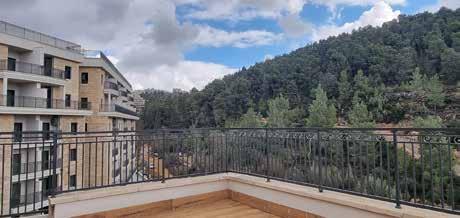
right place, at the right time. Beresheet.
In Beresheet, just 5 minutes from Jerusalem and 40 minutes from Tel Aviv, you can enjoy the breathtaking views of the Jerusalem hills and natural light in your spacious home and apartment complexes. For your convenience, there is an adjacent mall, a commercial center, a stunning national park, a magnificent synagogue, guest apartments for Shabbat and holidays, restaurants, and a wonderful atmosphere.
Shuttle services and car rental options are available to provide you with complete mobility. Don't miss the opportunity to become part of the unique Beresheet community, where quality of life meets nature and comfort blends with tranquility. Occupancy begins in 2025.

21.1.25 | 11:30–12:30
Lecturer: Rabbi Dr. Binyamin Lau Head of the "929 - Tanakh Together" Initiative
King Solomon in His Old Age
Join a fascinating journey into the wisdom of King Solomon through an in-depth reading of the Book of Kohelet.
Free lectures for those 50 and older
IN ALON SHVUT
Huge 3-room garden apartment (135 Sq.m., originally 5-rooms), in a small building, quiet & pastoral, near center of community, synagogue, shops & medical services Exclusive! Sigalit 0536302548

IN KIRYAT YOVEL (NEAR BAYIT VAGAN)
4-rooms, 6th floor, elevator, fully accessible, quiet & pastoral, perfect location, near shops, public transportation & light rail, synagogues, schools & kindergartens, Hadassah & Shaare Zedek Medical Centers, the Jerusalem Forest & open nature. Exclusive! Dotan 053-5888824

IN CLASSIC BAKA
A rare & unique 4-room garden apartment, authentic Arab-style house, private entrance 481sqm garden, additional separate unit (for rent), quiet & near everything: shops & cafes, clinics & parks, synagogues & public transportation, Exclusive! Anita 053 6318355





Rabbi Shalom
Parshat Sh’mot introduces us to Moshe Rabbeinu, the greatest leader of the Jewish people that ever lived. Yet, Rabbi Jonathan Sack’s points out, in his iconic work “Lessons in Leadership”, that beneath the surface there is a far more remarkable story of six heroines, without whom there would not have been a Moshe Rabbeinu.
Yocheved - the wife of Amram and mother of Moshe, Aharon and Miriam. She had the courage to have a child during the height of the Egyptian persecution and then devise a plan through which he can be rescued. If not for her boldness, there would not have been a Moshe.
Miriam - Moshe’s sister is portrayed as fearless and clever. The midrash tells us that Miriam convinced her parents to have another child, despite Pharaoh’s decree to kill all males that are born. She later convinces Pharaoh’s daughter that she can obtain a wet nurse to care for the newfound infant and brings Yocheved Moshe’s mother. In her merit the generation in the desert was miraculously granted a well through which they benefited from fresh water. She leads the women in song as the nation crosses the red sea. Miriam exhibits leadership and bravery.
Shifra and Puah - were the two midwives who frustrated Pharaoh’s plan to kill the
Jewish males at birth. They outwitted Pharaoh by constructing a cover story, claiming that the Jewish women give birth before they arrive, thereby saving the lives of many infants. This was likely the first act of civil disobedience – upholding their consciousness over conformity. Their courage earns them a high place among moral heroes of history.
Tzippora – Moshe’s wife was willing to risk her life and accompany Moshe back to Egypt. Along their journey, she saved Moshe’s life by circumcising their son. She had determination and at a crucial moment acted in a manner that is commendable.
Batya (or Bitya) - was Pharaoh’s daughter. She rescued Moshe when she found him in a basket along the Nile and adopted him. Imagine, the daughter of Pharaoh adopts a Jewish child at a time when there is a decree to kill young Jewish children.
These six women who are depicted in the beginning of Sefer Sh’mot were leaders not because of any official position that they held. They were leaders because they had courage and conscience. They refused to be intimidated by power or defeated by circumstance. Along with Moshe, they are the true heroes of the Exodus. Their courage is still a source of inspiration today. May we emulate their personalities.

SHABBATTO scooter offers a "Mehudar" Zomet-approved Shabbat mechanism that operates according to the "Existing Current Modulation" principle. The Shabbat mechanism is pre-installed and does not require expensive fitting.


Ready to go in 10 seconds. Folds and splits into 2 lightweight parts
For a FREE DEMO Call 077-9562833
For more information, visit our website at: movinglife.co.il/torah24

After a full week of convincing Moshe Rabbeinu to accept the mission to save the Jewish people from the Egyptian bondage, Hashem is still met with Moshe’s hesitation. Hashem then reassures him that his brother Aharon will not be jealous. On the contrary, Hashem tells Moshe Rabbeinu, “Ve’gam hinei hu yotze le’kratecha ve’ra’acha vesamach belibo – He is setting out to meet you, and when he sees you, his heart will be glad.” (Shemot 4:14)
The Midrash teaches, “Had Aharon known that the Torah would write about him that he would see Moshe and rejoice in his heart, he would have gone out to meet him with instruments and dancing.” (Vayikra Rabbah 34 8) Why indeed did Aharon not go out with a greater fanfare? Why was he simply content to greet his brother with joy in his heart? Let us try to understand the message being conveyed in the Midrash’s words, “had Aharon
Beloved father and grandfather
known” he would have acted differently.
Rav Druk in Aish Tamid offers a number of important insights here. He first notes that one of Aharon’s unique qualities was that of careful synchronization between his thoughts and feelings and his outer actions. Perhaps deep down he felt that he may have been harboring the slightest jealousy towards his brother and therefore considered any outer display of joy as falsehood. However, had he known the Torah would testify to his pure intentions, he would have acted in a more overt manner.
Alternatively, it is common for tzadikim to hide their actions so as not to draw attention to themselves. However, had Aharon known that the Torah would record his feelings and how it would inspire others to act similarly, he would have been far more forthcoming and visibly excited when he greeted his brother.
Rav Druk further notes a deeper message contained in the Midrash. “Had Reuven known it would be written,” it is human nature to respond positively when one’s actions are recognized by another. Encouraging words and positive feedback motivates people to extend themselves beyond their initial objectives. Each of us can be that ‘voice’ to bolster people’s actions and let them know how appreciated their efforts are.
The Midrash concludes, “today who writes?” When a person does a mitzvah, Eliyahu Hanavi and Melech Hamashiach write it down and Hashem seals what they write.
In Shiurei Da’at, Rav Bloch zt”l explains that the kitvei Hakodesh, the holy writings, are continually being written and any actions that bring the Messianic time closer are being ‘added to the book.’ Thus we are encouraged to realize how each positive action is valued, to ‘hear’ Hashem’s praise and be impelled and energized to keep spreading goodness, kindness and light to others.


02-567-0602
Keren Malki empowers families of children with special needs in Israel to choose home care. Donations are tax-approved in Israel, US and UK.
Honoring the memory of Malka Chana Roth ד”יה 1985-2001, killed in the Sbarro bombing.













www.noamhomes.com
office@noamhomes.com




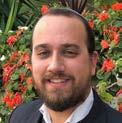
PAGE BY RABBI EZRA FRIEDMAN Director, The Gustave & Carol Jacobs Center for Kashrut Education Director, The Gustave & Carol Jacobs Center for Kashrut Education
The prohibition
A crucial concept in understanding the proper form of terumot and ma’asrot is when does produce become obligated in the mitzvah. As explained in previous articles, edible produce is obligated to have the halachic tithes removed. However, even edible produce has certain requirements before becoming obligated in the mitzvah of terumot and ma’asrot.
According to Biblical law, food that is completely kosher and cooked by a nonJew is permitted. However, our Sages decreed that such food, even when cooked in kosher utensils, is prohibited for consumption. This prohibition is known as bishul akum. In the coming weeks we will discuss the parameters of this rabbinic prohibition, including the reasons behind the decree, when it applies, and the practical halacha for modern industrial kashrut.
There are two stages written in our early sources, one is called onat hama’asrot and the other is called gmar malacha. Onat hama’asrot is the point where each type of produce is considered rip enough that tithes must be taken. Gmar malacha is a later stage when the individual has prepared the produce and is now required to have terumot and ma’asrot taken before consumption or any other preparation. In short, onat hama’asrot is on the fruit while gmar malacha is on the individual. This article will focus on the definition of onat hama’asrot.
Food is a very connecting element in every society. That is the basis behind the decree of bishul akum. Our Sages were very concerned about close relationships with non-Jews since intermarriage is a very severe transgression. The prohibition effectively limits Jews and gentiles dining with each other, although there is no specific prohibition against dining with a non-Jew per se. (See Rashi on Avodah Zara 31:b.)
Forbidding the non-Jew’s cooking would be enough to create an emotional distance such that families wouldn’t marry into each other.
Rabbeinu Tam (Tosfot Avodah Zara 38:a) and Rambam (Ma’achalot Asurot 17:9)
The obligation to take terumot and ma’asrot is only obligated on produce that has reached the point of onat hama’asrot. If the produce is so unripe that it is before onat ha’masrot one may consume the fruit without taking any halachic tithes. Although, once the produce
maintain that the decree is based on this issue of closeness to non-Jews that could lead to intermarriage; this is the opinion of most early authorities. However, Rashi and others attribute a different reasoning to the prohibition of bishul akum, which is that non-Jews might mix non-kosher ingredients into the kosher food. In future articles we will discuss whether the parameters of bishul akum are based on both of these reasons or just one. However, it is clear from numerous sources that the danger of intermarriage is the main reason behind the prohibition (See Torat Habayit 3:7).
has reached the halachic definition of onat hama’asrot tithes must be taken. It is halachically prohibited to consume such produce without taking terumot and ma’asrot.
The timing of onat ma’asrot is dependent on many factors. Although different types of produce have different definitions for when they reach the point they require terumot and ma’asrot. We will try to define in a practical manner when produce is required in the mitzvah of terumot and ma’asrot.
The decree is binding regardless of the reason
FRUIT AND VEGETABLES
The stage which determines whether tree fruits have reached the status of onat hama’srot is called "chanitah". The Hebrew term generally refers to the formation of fruit. However, there is a dispute amongst halachic authorities regarding the exact meaning of the halachic term.
According to Rambam (Shemitah Veyovel 4:9), once the fruit has reached a size which would render it edible (even if it’s not especially tasty) it becomes obligated in terumot and ma’asrot. In practice, this is about a third of the actual size of the fruit when it's ripe. Rash (Rav Shimshon of Sens) ruled that the stage of chanitah is much earlier. Rash rules that once a bud is visible the status is established. Rash himself writes that chanitah
Since the transgression of intermarriage was the primary concern behind our Sages’ decree, their goal was to powerfully discourage the possibility of developing emotional connections to non-Jews that could lead to intermarriage either in that generation or the next. Accordingly, early authorities discuss whether the prohibition of bishul akum still applies even in situations where intermarriage is not technically possible. For example, Rashba, in his responsa (1:248), examines the case of food cooked by a priest. Being that Catholic priests do not marry nor do they have children with whom to intermarry, is it permitted to eat food cooked by a priest even though the reason for bishul akum seemingly does not apply to
and onat hamaasrot are different times and chanitah relates to other areas of the halachot of fruit and vegetables in Eretz Yisrael.
Although our Sages gave exterior symbols on certain fruit to teach us the point of onat hama’asrot it is not clear to modern Poskim how to identify this point in the ripening process (see Mishpitei Eretz 6:4-7). As such later authorities rule that once fruit is edible even minimally it becomes obligated to have the halachic tithes removed (see Sharei Tzedek 2:9).
The OU Israel Gustave & Carol Jacobs Center for Kashrut Education was created to raise awareness and educate the public in all areas of kashrut. Rabbi Ezra Friedman, Deputy Rabbinic Administrator for OU Kosher Israel is the Center's director. him? Rashba answers that we have a rule regarding rabbinic decrees: even when the reason does not apply, the prohibition still stands. This is a necessary element in every rabbinic prohibition. Otherwise, Rashba explains, people could rationalize and find reasons why any decree should not apply in their particular situation. Accordingly, Rashba concludes that even food cooked by a Catholic priest has the prohibition of bishul akum. A similar ruling is made by Ramban (Avodah Zara 35:a) regarding non-Jewish royalty who, because of their stature, are prohibited from marrying Jews. He maintains that the fact that the non-Jews are royalty is irrelevant, and that the decree of bishul akum stands regardless of the reason behind it. Taz (YD 112:1) , Shach (YD 112:4) and Pri Megadim (YD 112:1) cite these rulings as axioms of the laws of bishul akum.
Other examples
Regarding vegetables, early sources rule that once vegetables become edible they are immediately obligated in terumot and ma’asrot (similar to today’s ruling regarding fruit). Based on this ruling most spices or leafy vegetables are obligated even when in the status of saplings since they are edible and consumed in that fashion. Such products include mint, coriander, parsley, lettuce and other leafy vegetables. Other vegetables that only become edible after a certain amount of growth have the same rule as fruit, an example of such a vegetable is Tomatoes.
Later authorities discuss similar cases where the logic behind bishul akum may

gentiles, even if the ingredients and utensils are kosher.
The reason cited by most authorities is the risk of intermarriage.
Walking down King George St. in Jerusalem and want a cold bottle of water?
Come help yourself to a bottle at 52 King George.
Even in cases with virtually no risk of intermarriage, the food is still prohibited, including non-Jewish royalty, priests, young children, and non-Jews from distant lands.
In loving memory of Yoni’s wife Tziporah a"h, a true Eishes Chayil, always full of chessed, kindness and laughter, and brought life and strength to so many people, that she touched! She was like Aron, who loved peace and pursued peace.
Call or Whatsapp Rabbi Friedman at 050-200-4432


golanechasim@gmail.com
Meir Golan
Old Katamon: 4-room apartment in a small and quiet street, 101 sqm, renovated, very bright and airy, master bedroom, Safe room (mamad), sukkah balcony, view, elevator, 3,400,000 NIS
RASCO: new 4

95m, master suite, elevator, balcony, very nice
Old Katamon: 4-room apartment, 90 sqm, well split, bright, airy, sukkah
2,950,000 NIS
Yoni thanks Hashem for having the opportunity of having Tziporah in his life, to learn of her caring, patience and happiness, to overcome her challenges. May Tziporah's Neshama be a light onto the world, in a time of darkness, and may her Neshama shine to Gan Eden. Yoni misses Tziporah with tears in his eyes, as Hashem gave him a gift, a crown jewel, now he returns her to Hashem. With thanks and Toda. Love, Yoni
Meir Golan 077-2050015 052-2678749
ARNONA: 4-room apartment, 90m, beautifully renovated, master suite, balcony, storage, Shabbat elevator, private parking 3,250,000 NIS
BAKA: New 4 room apartment in a new building, 88m, master suite, storage, Shabbat elevator, private parking, 3,950,000 NIS

RECHAVIA: 4-room apartment, 92m, Suka balcony, Shabbat elevator, fully accessible, private parking, storage 4,400,000 NIS
ARNONA: 5-room apartment, 120m, balcony, elevator, fully accessible, private parking, storage 4,350,000 NIS
To help refill the supplysend tax deductible donations for Be’er Tziporah a"h Bottled Water Gemach to Chabad of RechaviaRabbi Yisroel Goldberg email Rabbi@JerusalemChabad.org 02 800-1717
BAKA: 5-room garden apartment, 140m, master suite, private parking, storage, full of light, airy, nice garden, 5,000,000 NIS
www.JerusalermChabad.org/DonateShekels
OLD KATAMON: Spacious new 5-room penthouse, 155m,


Executive Director, Camp HASC
Mischel EXECUTIVE DIRECTOR, CAMP HASC
Author of Baderech: Along the Path of Teshuva (Mosaica 2021)
AUTHOR OF BADERECH: ALONG THE PATH OF TESHUVA (MOSAICA 2021)
One of the primary disciples of Rav Chaim Brisker, Reb Boruch Ber Leibovitz, was a talmud genius of renown and one of the great progenitors of his Rebbe’s methodology and path. The author of Birkas Shmuel and Rosh Yeshiva of Kaminetz, Reb Baruch Ber was respected for his scholarship and beloved for his midos tovos and elevated personality.
One day there was a handyman working in the Rosh Yeshivah’s home, repairing the oven. Reb Baruch Ber returned from Shacharis and when entering the kitchen, saw the man kneeled over busy fixing the pipes. “Dzień dobry, good morning,” he said warmly in Polish. The fellow immediately rose to his feet and turned around to face Reb Baruch Ber, “Shalom Aleichem Rebbe, a gut morgen!” Removing his cap, he revealed the yarmulka on his head. “It’s me, Avreimel!”
Reb Boruch Ber was taken aback and profusely apologized to the simple Jew for

mistaking him for a Polish repairman. Avreimel smiled shyly. “Rebbe, it was an innocent mistake! Really, it is fine, the Rosh Yeshivah has nothing to feel bad about!”
“Please”, pleaded Reb Boruch Ber, “Please forgive me. Could I ask you, would you mind sitting down with me for a few moments?”
Then and there, the Rosh Yeshivah delivered a veritable ‘shiur klali’ explaining the greatness of a Yid, the exalted nature and purity of the soul, the essential differences between Jews and gentiles, as well as the nachas that the Ribbono shel Olam has in our fulfillment of Torah and mitzvos. Avreimel was amazed, as step by step, the great lamdan and maggid shiur dissected the deepest philosophical ideas and sources in a most understandable and relatable way, with a clarity and simplicity that Avreimeleh could understand.
“My dear Avreimel,” the Rosh Yeshivah concluded, “you are a shining Yid, a direct descendant of our Avos — named after Avraham Avinu! I hope you now realize how special you are, and how grave an error I made. Oy, did I wrong you. All I saw was a person laying on the ground covered in soot working on the oven. Now you and I both are aware that I was looking at a ben Melech, splendorous royalty, a prince!”
A big smile stretched across the handyman’s face as Reb Boruch Ber clasped his hands and shook them with holy passion, his booming voice filled with joyful love and respect: “Shalom Aleichem, Reb Avreimel!
A gut morgen to you, my dearest brother!’’
This Shabbos, we begin reading Sefer Shemos: Klal Yisrael is deep in exile, surrounded by idolatry, stuck in impurity and the spiritual filth of Mitzrayim. Our Sages relate the mournful condemnation of the angels upon seeing the Jews at their lowest, ולא
הרז, “What distinguishes these from the Egyptians? Both serve idols!” Indeed, Reb Tzadok haKohen of Lublin, zy’a, taught (Pri Tzaddik, Pesach #24): “It is known that at the time of the Exodus of the Jewish People from Egypt, there was not one distinction between them and the Egyptians, as the verse states: “A nation from within a nation.” (Devarim, 4:34). Yet even there, mired within the darkness of exile, the Ribbono shel Olam revealed and even ‘celebrated’ our true identity as B’ni bechori Yisrael, “Yisrael, My firstborn child.”
Ze’ev Jabotinsky was a Russian Jewish Revisionist Zionist leader, author, activist and poet. Passionate about his people, Jabotinsky helped spearhead a struggle to recover a sense of Jewish national pride, self-esteem, freedom and nobility, and actively participated in the struggle to reclaim our Homeland. Shir Betar, an anthem penned by Jabotinsky, expresses the attributes of self-respect, integrity, loyalty and pride, as well as hadar, a term not easily translated. This hymn inspired the Betar fighters in the Warsaw Ghetto uprising and in the revolt against British occupation in Eretz Yisrael: Hadar, ‘Splendor’ /
Even in poverty a Jew is a prince / Whether slave or tramp, You have been created as ‘ben Melech’, the child of kings / Crowned with the diadem of David. Whether in light or in
is reluctant to send Yishmael away and Yitzchak seeks reconciliation with Yishmael and seeks to bless Esav.
darkness / Always remember your crown / The crown of pride.
6th Aliya (25:1-11) Avraham marries Keturah; they have 6 sons. All that Avraham has goes to Yitzchak; these are sent eastward with gifts. Avraham dies at age 175; he is buried by Yitzchak and Yishmael in Ma’arat Hamachpelah. Yitzchak is blessed by G-d: he lives in Beer L’chai Roi. The transition from Avraham to Yitzchak is complete. While G-d has been a silent partner in this parsha, here He completes the generational transfer – He blesses Yitzchak. The Jewish people will be Yitzchak and not Yishmael.
It is true — at the time of our redemption from Mitzrayim, we, Am Yisrael, lacked both merit and righteous deeds, and we were extricated from amid the Egyptians as a goy m’kerev goy, “a nation from within a nation,” barely distinct from our captors. We were saved not because of our deservedness, but as a result of Hashem’s kindness and love – as a result of who we are. Reb Tzadok continues:
It is only that the Ribbono Shel Olam desired them and swore to redeem them, and in His great mercy He appeared from within the depth of their hearts in all His holiness, without any preparation on their part, until he took them out of Egypt.
7th Aliya (25:12-18) The generations of Yishmael are enumerated. Yishmael dies. His descendants dwell from Egypt to Assyria. Yishmael’s story is brief. He has numerous and powerful offspring. The brevity is interested the Jewish length. echoes tions woman and began father’s that his icant the
While we certainly must do our best to fulfil our obligations and strive to be worthy of the great covenant and inheritance of a ‘chosen nation’, the parshios in which we relive our lowest moments are invitations to remember that our salvation depends on how we see ourselves. Even when, on the surface, we seem indistinguishable from our Egyptian oppressors or the local Polish handyman, we Yidden are bnei Melech, and הובאד
אוה, “an inheritor is (inseparable,) like a limb of his father” (Eruvin 70b).
May the Ribbono shel Olam bless us to recognize who we really are, and who others really are — and ךָרדהו
לע, “May Your deeds be revealed upon your servants, and Your Hadar upon Your children!” (Tehillim, 90:16)
Knesset
BY RABBI R av, Beit
When Avraham addresses the people of Cheit, trying to “Ger V’Toshav Anochi Eimachem” (23:4) “A Stranger and This seems to be a contradiction. If one is a stranger than is no longer a stranger. What did Avraham mean? The Magid of Dubno (Jacob ben Wolf Kranz 1741-1804) this tense situation in order to, both, state his truth and be said, on the one hand, “I am a Resident’ due to G-d’s promise need your agreement to purchase a plot. In other words, Avraham “strangers”, while they understood him as saying that “they” The peace was kept, and Avraham remained true to his Shabbat Shalom











TO SPONSOR A SHIUR CONTACT
Chana Spivack - 050-229-4951 or donate online: https://www.ouisrael.org/donate/ou-israel-center/
RABBI MANNINGS SHIUR - WED., JAN. 15TH
Sponsored by Anna & Simon Wiseman on the 25th Yahrzeit of Natan Meir ben Shimon Hacohen z”l, Anna’s father on 18 Tevet
RABBI SAM SHOR’S SHIUR - THUR., JAN. 16TH
Sponsored by Nechama Charles and Esti Radin in memory of Yisrael Ben Avraham z”l. He was admired and loved, hìs passion was always for Am Yisrael and Eretz Yisrael the arrival of Moshiach Tzekainu. Yehi Zichro baruch.
SHIRA SMILES SHIUR
MON, JAN. 13TH
Sponsored by Rachel Schilowitz in honor of the birth of Batya Aloni
RABBI MANNING’S SHIUR
Sponsored for the 2025 academic year תמשנ יוליעל
RABBI GOLDSCHEIDERS’S SHIUR
Sponsored for the 2025 academic year תמשנ וליעל
RABBI ADLER’S SHIUR
Sponsored for this academic year by the in memory of their beloved daughter and sister Elisheva Frist a”h – ה”ע
RABBI SHAI FINKELSTEIN’S SHIUR
Sponsored for the 2024-2025 academic year by the Sondhelm and Wertenteil Families in memory of Mel & Sylvia David z”l


Shlomo ben Yosef St. 3 room apt, 60 sqm., second floor down from the entrance, balcony to beautiful view over the valley, needs full renovation.
Asking price: NIS 1,675,000









BY RABBI SAM SHOR
Program Director, OU Israel Center
BY RABBI SAM SHOR DIRECTOR, TORAH INITIATIVES, OU ISRAEL
Parshat Shemot introduces us for the first time to Moshe Rabbeinu .The Torah describes Moshe's birth, his clandestine early weeks of infancy, and his being sent down the Nile to be adopted by Paroh's daughter, to be raised in the palace of Egypt.
The Torah describes in unusual language the birth of Moshe Rabbenu :
so that indeed Moshe would grow up as a nobleman rather than a slave, in order that he should be prepared for his sacred task! Not only would it instill Moshe, with knowledge and confidence, but had he grown up a slave, among his brethren, perhaps Klal Yisrael might have been unable to accept him as a leader, if he had simply been a slave like everyone else.
The woman conceived and bore a son; and when she saw that he was good, she hid him for three months.
Rashi, quoting the Gemara in Sota, explains the words Vateira Oto Ki Tov Hu-And She saw that he was good - When he was born the whole house became filled with light.
The great Chasidic Master, the Yismach Moshe zy'a, offers a further insight into the meaning of our verse. The Rebbe explains from the time of his birth it was clear that he was kulo tov, only good, and that he was destined for greatness.
However, it is easy to see from the various pesukim describing the early years of Moshe Rabbeinu's life, that very little detail is given to those formative years in the royal court of Egypt.
The Ibn Ezra,in a brilliant insight points out that Moshe's trajectory from young lad on the Nile, to royalty, to redeemer all come to demonstrate that Hashem's ways are truly deep and beyond our comprehension. Perhaps Hashem orchestrated these events
What looks at first glance to be the complete opposite course of preparation one might imagine for the greatest of Jewish leaders, in reality sets the stage perfectly for Moshe Rabbeinu to become who he is truly destined to be.
There is a dual musar haskel inherent in this insight from the Ibn Ezra. First and foremost, that Hashem's ways are truly beyond our comprehension, and that ultimately Hashem orchestrates the course each of us are destined to traverse. But equally important is the notion that Moshe's seemingly less than conventional journey to assume the mantle as our greatest leader and teacher, should inspire within each of us that no matter our background, no matter our individual journeys, we too can achieve greatness, we too can excel and reach the highest echelons of Limud HaTorah and Avodat Hashem.
This idea is further illustrated by the familiar Mishna in Sanhedrin -Kol Yisrael Yesh Lahem Chelek L'Olam HaBaa.
The Avodat Yisrael of Koszhnitz zy'a, in his commentary on Pirkei Avot, explains our mishna, and points out that the words
L'Olam Habaa meaning into the World to Come are different than the words B'Olam Habaa -in the World to Come. Our mishna teaches us a very profound message- there are different pathways toward achievement, success, and merit! There are divergent paths and journeys that we may traverse in this world that lead us to our place in the next world. Each of us, in our own unique way, are capable of achieving success, are deserving of merit, and can reach the highest heights! Yehi Ratzon, may each of us be inspired to see the potential for greatness innate within each of us, and may we live up to our potential, contributing in our own unique way to bringing goodness and light into the world.











RABBI MOSHE TARAGIN
RAM YESHIVAT HAR ETZION
MAGGID SHIUR ALL PARSHA AND ALL DAF, OU.ORG
Please continue to pray for my son
Noam Avraham ben Atara Shlomit
Slaves in Egypt, we were trapped and isolated, landlocked in despair, bereft of Hashem's presence for generations. The towering personalities of Bereishit had long since faded into memory, their brilliance a distant echo. Brutal enslavement had become our daily existence and for many, slavery was all they had ever known — they were born into its chains, unable to imagine anything beyond a nightmarish life of bondage.
To set the wheels of redemption in motion, Hashem appeared to a solitary shepherd tending to his flock in the wilderness. Moshe

Rabeinu would one day rise to become the greatest man in history — a leader who would shatter the arrogance of tyrants, command the seas to part, and ascend the heavens. This moment of revelation at the s’neh or burning bush marked the beginning of a series of divine encounters that would culminate in Har Sinai, where an entire nation would hear the voice of Hashem.
That first, quiet revelation of the Shechinah unfolded on the same slopes of Har Sinai, but in a more subdued and intimate fashion. Hashem appeared to Moshe through a bush ablaze with fire, yet miraculously untouched by the flames. This extraordinary phenomenon—a fire that burns but does not consume— conveyed a profound message to Moshe: the story of our people transcends natural laws. Logic would deny the possibility of a nation of slaves overthrowing the mightiest empire of its time. The burning bush, defying the rules of nature, reminded Moshe not to rely solely on logic. Redemption follows a path shaped by a divine mystery, whose contours and patterns are imperceptible to human reason and prediction.


The bush that burned without being consumed also carried a timeless lesson about Jewish resilience. Even when the Jewish world is engulfed by the flames of chaos, oppression, and evil, we are never consumed. A nation savagely subjugated for two centuries would not only survive but
would transform religious history. The image of the bush ablaze yet enduring remains a cornerstone of Jewish destiny.
But why a bush? Why did Hashem choose such a humble form to host the first revelation that reintroduced Him into Jewish history?
Evidently there were important lessons not just in the bizarre eye-catching phenomenon of a bush which didn’t burn but also in the selection of a shrub to begin with. The choice of a bush conveys at least five distinct layers of symbolism.
In redeeming our people, Hashem was also introducing humanity to core themes of monotheism. Our ancestors had begun revolutionizing religious consciousness, but two centuries of slavery had interrupted this mission. Even we, as a nation, had slipped into paganism, halting the march of monotheistic belief. To restart this grand process of spreading monotheism, Hashem had to reestablish fundamental principles of faith.
By appearing to Moshe in a simple, unassuming bush, Hashem conveyed a profound truth: no part of reality is devoid of His presence. His greatness is not confined to the grand or majestic elements of creation. He is equally present in the lowly, the overlooked, and the ordinary. As the Zohar states "Leit atar panui mineh"—there is no place absent of His essence. Every aspect of creation exists through His will and is sustained by His hand. The humble bush was a powerful symbol of this all-encompassing divine reality.
Additionally, Hashem indicated to Moshe that, as mighty and transcendent as He is, He is also the ultimate model of humility.

077-2050015
052-2678749
golanechasim@gmail.com
Meir Golan
Old Katamon: 4-room apartment in a small and quiet street, 101 sqm, renovated, very bright and airy, master bedroom, Safe room (mamad), sukkah balcony, view, elevator, 3,400,000 NIS

Meir Golan
Old Katamon: 4-room apartment, 90 sqm, well split, bright, airy, sukkah balcony facing a magnificent panoramic view, 3 exp Shabbat
ARNONA: 5-room apartment, 115m, master suite, balcony, storage, Shabbat elevator, private parking, 4,000,000 NIS
RASCO: new 4 room apartment, 95m, master suite, elevator, balcony, very nice view 2,950,000 NIS
ARNONA: 4-room apartment, 90m, beautifully renovated, master suite, balcony, storage, Shabbat elevator, private parking 3,250,000 NIS
BAKA: New 4 room apartment, 88m, very high ceilings, master suite, Shabbat elevator, balcony, 4,450,000 NIS
BAKA: New 4 room apartment in a new building, 88m, master suite, storage, Shabbat elevator, private parking, 3,950,000 NIS
KIRYAT SHMUEL: New garden apartment, 98m, 50m garden, master suite, full accessibility, private parking, 5,400,000 NIS
RECHAVIA: 4-room apartment, 92m, Suka balcony, Shabbat elevator, fully accessible, private parking, storage 4,400,000 NIS
ARNONA: New 6 room penthouse, 155m with 55m terrace, nice view, Shabbat elevator, 2 parking spaces, storage, 5,300,000 NIS
ARNONA: 5-room apartment, 120m, balcony, elevator, fully accessible, private parking, storage 4,350,000 NIS
OLD KATAMON: 5-room apartment, 124m, Suka balcony, nice view, bright, Shabbat elevator, parking, 6,600,000 NIS
BAKA: 5-room garden apartment, 140m, master suite private parking, storage, full of light, nice garden, 6,000,000 NIS
KIRYAT SHMUEL: New 4 room penthouse, 125m, 105m terrace, Shabbat elevator, great view, private parking, 13,500,000 NIS
OLD KATAMON: Spacious new 5-room apartment, 140m, terrace, underfloor heating, Shabbat elevator, 2 parking, 6,300,000 NIS
FOR RENT:BAKA: nice 4-room apartment, 82m, beautifully renovated, master suite, air conditioners, balcony, second floor, elevator - fully accessible, storage, 8,000 NIS
TALBIYA: 5 room apartment, 290m, 4 full bathrooms, balconies, beautiful view, Shabbat elevator, 2 covered parking spaces, 25,000,000 NIS
“B’chol makom she’atah motzei gevurato shel Hakadosh Baruch Hu, sham atah motzei anivutano—anytime Hashem’s might is mentioned, his humility is also invoked”. Hashem's mighty strength is sometimes best expressed through humility. Moshe learned this lesson deeply and became the humblest man to ever walk the earth, as the pasuk attests
The s'neh became a symbol of humility, setting the tone for Moshe’s remarkable career. There was an additional moral message in Hashem's choice to appear in the bush. We were enduring one of the lowest moments in Jewish history—centuries of backbreaking slavery, massacres, and unrelenting persecution.
Hashem appeared to us in a bush to convey that, in our suffering, He is with us. The
doctrine of Shechinah B’galuta teaches us that the decline of the Jewish people parallels a decline in the presence of His Shechinah in the world. If our nation endured suffering and anguish, Hashem's Shechinah mirrored this state, dwelling “in pain” (kevayachol), as symbolized by its first revelation within a lowly bush.
Beyond the theological and moral messages of the bush, there is a profound lesson about the odyssey of Jewish history.
The Midrash points to the role of bushes and hedges in dividing and protecting properties from encroachment. Hedges serve as a form of fencing. By appearing to us in a bush, Hashem signaled that our own historical mission is to serve as a “fence” for humanity.
A hedge marks boundaries, clearly distinguishing between what is inside and what lies beyond. It establishes ownership and separates what belongs from what does not.
In Talmudic terminology, a "geder," which literally means a fence, also refers to a well-defined legal concept. Legal principles cannot be vague or ambiguous; they must be precise and specific. Applying these concepts requires clarity—knowing exactly what falls within the principle’s scope and what remains outside it.
By living a life of mitzvot and covenant, and by upholding moral principles, we are called to define a Godly way of life for humanity. Our conduct is meant to draw clear boundaries, much like a fence that marks the limits of a property—distinguishing between behavior that is fitting and behavior that lies beyond acceptable bounds.
Hashem's appearance within a bush was no coincidence. It symbolized this mission
at the onset of Jewish redemptive history, underscoring our role as a people tasked with illuminating the moral contours of human existence.
A wall of hedges and bushes not only defines but also shields, protecting the home or garden from harmful intrusions. Similarly, our mission extends beyond setting moral and religious boundaries; we are also tasked with safeguarding humanity against the ever-present forces of evil that seek to overwhelm it.
This second role of a fence- to protect, is also reflected in the imagery of sand on the seashore, standing firm against the relentless waves that threaten to flood the Land. Avraham and Ya’akov were entrusted with this sacred mission through the metaphor of sand. Generations later, Moshe, wandering in the wilderness, was taught the same lesson—but this time, through the image of a hedge, standing tall and unyielding in defense of what is good and just.
Finally, beyond the messages about Jewish mission and destiny, the s’neh delivers a profound lesson about Jewish exile. Our painful enslavement in Egypt was not merely a singular event; it set the paradigm for future galut.
Exile is not inevitable. When we live faithfully, observing Hashem’s commandments with devotion, we are privileged to dwell in the Land of Israel, under His protective presence. However, disobedience disrupts this harmony, leading to our expulsion and a return to the trials of galut. The Egyptian exile foreshadowed this potential historical trajectory, serving as a blueprint for the challenges and consequences that may follow our
choices.
A bush embodies two defining aspects of galut. First, exile can be harsh and wounding, as our people are sometimes scarred by its trials. Second, like a thorny hedge, galut often traps us, making our liberation an arduous struggle.
The s’neh conveyed this dual message about galut to Moshe: galut would at times be thorny—both painful and challenging to escape.
The s’neh of Moshe Rabeinu recalled an earlier bush that carried a similar message. After learning that he would not need to sacrifice his son, Avraham, standing atop Har HaMoriah, noticed a ram caught in a bush, its horns ensnared, struggling to free itself. At that moment, at the dawn of Jewish history, Avraham was shown a profound truth: galut would sometimes be painful, with thorns that scrape and entangle, making liberation a formidable challenge.
Centuries later, at the beginning of Jewish redemptive history, Moshe received this same message. Hashem appeared to him in a bush to foreshadow the struggles of exile. The path to redemption would not always yield to our efforts, often proving as thorny and difficult as thrashing one’s way through tangled hedges.
Throughout our triumphant yet often turbulent history, we too have found ourselves ensnared in burning bushes—tested by fire but never consumed.

Rabbi Taragin’s newest sefer entitled “Reclaiming Redemption Deciphering the Maze of Jewish History (Mosaica)” is now available at: www.reclaimingredemption.com and in bookstores.


Join our dynamic Jerusalem-based team, specializing in US tax services for Americans in Israel.
Position: Personal Assistant to CEO


• Manage CEO’s schedule, communication, and vendor relations
• Assist with admin tasks
• Full-time, on-site role





• Strong organizational and communication skills (English & Hebrew)


• Tech-savvy with MS O ce experience

• Prior PA or EA experience is a plus Apply now to be part of a growing rm! [send your CV to Shmuel@goldarrowtax.com and mention this ad. 058-450-6071]
www.yeshezra.org
Director: Menachem Persoff

THIS WEEK: We urgently need your help to cover therapy sessions for three children in one family. Thank you.
Website: www.yeshezra.org
Bank Transfer: Mercantile (17), Branch 642, A/C 79747843
Send Asmachta for receipt
Checks: “Yesh Ezra,” POB 31476, Romema, Jerusalem
Credit Card:
Sara – 077-820-0196 / 058-530-9161
Sun-Wed (10:00am-14.30 pm)
Tax benefit for donations as per section 46a of the Israeli tax code “Turning Despair into
Inquiries: Menachem Persoff 050-570-1067 | menpmp@gmail.com


Do Property Management** Rental Mgmt * & Caretaking Services





YESHAYAHU 27:6-28:13, 29:22-23
Keeping with the general rule that the Haftorah must end on a positive note, the Haftorah skips 37 pesukim to conclude with a powerful message of redemption. The penultimate verse declares: שובי התע־אֹ ל
, Not now will Yaakov be ashamed, and not now will his face turn pale. The repetition of התע אל—“not now”— emphasizes the immediacy and certainty of the promise. It prompts us to ask: What is it about this moment, this "now," that alleviates Yaakov's shame and lifts his spirits? How does Yaakov, representing the Jewish people, hold his head high after enduring trials and suffering?
The answer is found in the next posuk: יכַּ
, For when he sees his children, the work of My hands in his midst, they sanctify My name; they sanctify the Holy One of Yaakov and revere the God of Israel. Yaakov’s pride is restored when he sees his children walking in the righteous path, sanctifying Hashem’s name through their actions. Rashi explains that this sanctification refers to the bravery of Chananya, Mishael, and Azarya, who were willing to sacrifice their lives rather than bow to Nebuchadnezzar’s idol. Their willingness to stand firm in the face of danger brought great honor to Hashem and
BY REBBETZIN DR. ADINA SHMIDMAN
DIRECTOR, OU WOMEN’S INITIATIVE

to Yaakov, their forefather.
Perhaps this moment in history is the התע that Yeshayahu envisioned—a time when the sacrifices and bravery of our children lift the Jewish people from shame to pride, from fear to strength. Since October 7th, our children— our soldiers, defenders, and volunteers—have shown extraordinary courage, passion, and sacrifice. They have risked everything, embodying the very essence of what it means to sanctify Hashem’s name. Like Chananya, Mishael, and Azarya, they have displayed a fierce commitment to protecting the Jewish people and upholding our values, even under the most trying circumstances.Their actions remind us that true pride comes from living—and, if necessary, sacrificing—for a higher purpose.
May this התע, this moment in time, be the turning point that transforms darkness into light, lifting Yaakov’s face with pride and bringing redemption and peace to our people. May we merit to see these visions of redemption realized speedily in our days.
Do you have a life insurance policy you:
• No longer want?
• No longer need?
• Can no longer afford the premium?
• Could you use extra money instead of keeping your policy?
I can guarantee that if you qualify with the underwriting process I can get you more money than if you cash it in with the company.
Please contact Moshe Russell at: Buymypolicy32@gmail.com

I’M SHLOMO GEWIRTZ, here to help םיִלוֹע with their Zionist dream to stay in Israel and thrive. You move here, you love it and then, walla finding the right work is no mere הָחרִט; the competition is tough. Every day you pray , you daven : “How will I survive? Who do I turn to?”
Let’s grab a coffee. I’ll show you how to outsmart the system, beat the sabras and find the jobs nobody posts. For decades, I’ve been training Jews in America and Israel to discover what they do best and then stop hiding behind screens. Meet hiring managers םיִנָפ
, learn what the market needs, sell yourself and get the pay you deserve.

RABBI AARON GOLDSCHEIDER EDITOR, TORAH TIDBITS RAV, THE JERUSALEM SHUL BAKA, JERUSALEM
Editor, Torah Tidbits
Rav Kook was well known for reaching out to those who were distant from adherence to mitzvot. Although he was always sensitive and accepting of those who chose a secular way of life, he sought to lovingly bring them closer to religious practices and to Torah observance.
His compassionate and embracing approach can be traced back to the following two stories reported in the Talmud (Berachot 10a):
A number of irreligious Jews lived in Rabbi Meir’s neighborhood and they used to bother him very much. So annoyed was he that Rabbi Meir wanted to pray that they should die.
should pray that they return (to Judaism).”
Rabbi Meir prayed for them, and they eventually did return (to Judaism). (Translation by Rabbi Aryeh Kaplan, Reaching Out, p. 53)

Rav Kook suggested that Rabbi Meir saw no use in praying for those who had chosen a path of wickedness and cruelty. The Talmudic sage held that they should be held accountable for their actions. Bruriah, however, saw things differently. The wicked are misled and often compelled by their evil inclinations. However, no one, even one who is sinful, is absolutely corrupt to the extent that they cannot be influenced to better their ways. Bruriah believed in the greatness of the human spirit, which God created upright and good. The goodness of the soul has the potential to break the shackles of the surrounding evil tendencies and influences. (Ain Aya vol. 1, p. 48 on Berachot p.10)
Bruriah, his wife, said to him: “Why do you wish to do this? Is it because it is written (Psalms 104:35), Chata’im shall cease to exist?” Who says that the word there is Chot’im, meaning sinners? The word used in the scripture is Chata’im, meaning sins. Furthermore, look at the end of the verse, “And the wicked shall be no more.” Once sins cease to exist, then “the wicked shall be no more.” (Rather than pray for them to die,) you
It is noteworthy that we find a strikingly similar Talmudic passage which highlights the advantages of a tolerant approach:
“Some irreligious Jews lived in the neighborhood of Rabbi Zeira. He used to associate with them, in order to bring them back (to the Torah). The other rabbis, however, did not consider this proper. When (Rabbi Zeira) died, these (irreligious Jews) said, “This short man with burned legs (for Rabbi Zeira was short and had burned his legs in an accident) used to pray that God would have mercy on us. But
now (that he is dead) who will pray for us?”
They thought about this, and eventually returned (to the Torah).” (Sanhedrin 37a) (translation by Rabbi Aryeh Kaplan, Reaching Out, p. 54)
In the spirit of these Talmuidc stories Rav Kook lovingly followed the practice of befriending and drawing close the less observant to the pathway of the Torah.
Among the hundreds of letters that were published in the multi-volume collection of Iggrot Ha’Raaya, we have Rav Kook’s response to a broken hearted father whose two sons abandoned a religious way of life. Rabbi Milstein, a shochet and admirer of Rav Kook asked his advice concerning the correct way to treat his rebellious children.
While many contemporary rabbis took the position that a parent must adamantly reject a child’s divergent path, Rav Kook preferred a more compassionate approach: “My way is to relate to the youth with the trait of absolute kindness and to explain to them how many good points exist within their ideals. Their entire mistake is that what they think is good, they feel is opposite the Torah; but in truth, it is the essence of the Torah” (Iggrot Ra’ayah vol. 1, p. 58, translation Schwartz, Spiritual Revolution of Rav Kook, p. 167).
The beloved tzaddik of Jerusalem, Rav Aryeh Levin, once remarked how he was profoundly influenced by an unforgettable meeting he was privy to attend between Rav Kook and the Lubavitcher Rebbe, Rabbi Yosef Yitzchak Schneerson. In 1929 the Rebbe came on a visit to the Holy Land, and he was staying in the Old City of Jerusalem.

Rav Aryeh was deeply impacted by one particular point that Rav Kook shared with the Rebbe: “At that meeting,” said Rav Aryeh, “I learned a fundamental law that prevailed in the thought of his master teacher, Rav Kook: When it comes to rescuing our brethren, members of Jewry, the concept of m’sirut nefesh - dedication, readiness for self- sacrifice - cannot be limited to giving of your physical self (work, energy, effort) or your money or property for the sake of others. It has to be enlarged, expanded to include even the readiness to sacrifice your spirit, your soul. Even if you think that the matter will cost you your life in the Hereafter, your eternal reward in the Afterlife, you must go ahead and assist your brethren.” (A Tzaddik In Our Time, Raz, pp. 101-102)
Rav Kook advised this distraught father to try his best to be sympathetic and draw his sons close. Even if the young men are not open to returning to an observance now, a warm and inviting approach is always best. In addition, one never knows if it will potentially have a positive effect on the next generation. (Ibid)
Rav Aryeh emphasized that being present at that meeting and hearing Rav Kook’s words had an exceptional effect on his understanding of the extreme kindness and devotion which is required of a Jew to bring our fellow Jews closer. Indeed, true self-sacrifice is required in this most virtuous domain of helping Jews return to their Creator.
Rav Kook often highlighted, both in word
and action, the enormous importance of kiruv rechokim (outreach to the less affiliated) and how it must be enormously valued in the life of the nation.
It should be noted that Rabbi Moshe Feinsten, who was regarded as one of authoritative leaders in the community known as the “Yeshiva world,” strongly urged every knowledgeable Jew to incorporate a segment of time in one's schedule to reach out to the less affiliated. At an important gathering in June 1973, the eminent sage spoke about the responsibility a Jew has to Jews who are distant from observance. This address later appeared in print as an article edited by Rabbi Aryeh Kaplan in his book on the topic of outreach titled “Reaching Out.”
Rabbi Moshe Feinstein strikingly declared that one tenth of every Jew’s time should be dedicated to reaching out to others: “In the case of charity, one must give a tenth of his income to the poor (Yoreh Deah 249:1). Likewise, one must spend one tenth of his time working on behalf of others, bringing them close to Torah.” (Reaching Out, Kaplan, p.65)
In the winter of 1913 Rav Kook set out, together with a group of eminent rabbis to visit the new farming settlements in the Shomron and Galilee in order to reach out to the Jews who were living in these communities. Rav Kook wanted to meet them where they were, both literally and figuratively. He hoped to inspire them and bring them closer to a Torah observance. In particular they wished to inspire greater Shabbat observance, Torah study in the children's school and the practice of tithes in the agricultural settlements.
There are many wonderful accounts
recorded of the warm reception and close bonds that were forged in the meeting between the rabbis and the farmers and secular pioneers. One such encounter took place on the Poriah farm near the town of Tiberius. There were only about sixty workers at the time. They welcomed the rabbis, conversed, and even danced together.
Rav Kook turned to two young men who were on guard duty that evening. They were both wearing Arab cloaks and keffiyeh headdresses, with rifles slung on their shoulders. Rav Kook took them aside. Rav Kook asked if he could borrow their uniform. Rav Kook returned to the dancing wearing the keffiyeh on his head and a rifle over his shoulder.
Rav Kook suddenly stopped the dancing and said: “My holy brothers, I am deeply proud to wear your clothing. You are the builders of the Land!...Please, I ask you to also be proud of the Torah of Israel. Be proud of the merit to observe mitzvot and to study the holy Torah,” And with a warm smile, Rav Kook cheerfully added, “I will give you back your clothing that you wear to guard...But I would like to ask of you, please guard over your pintele yid, your inner Jewish spark.”
Rav Kook continued dancing hand in hand with the chalutzim. He joyously led them enthusiastically with the words, “Ve’taher libeinu,” - “Purify our hearts, so that we may truly serve You!” (Stories From The Land of Israel, Morrison, pp. 38-39)

Rabbi Goldscheider’s most recent OU Press Publication, “Torah United” on the weekly Parsha, can be ordered directly from Rabbi Goldscheider at Aarong@ouisrael.org at a special price for Torah Tidbits readers.




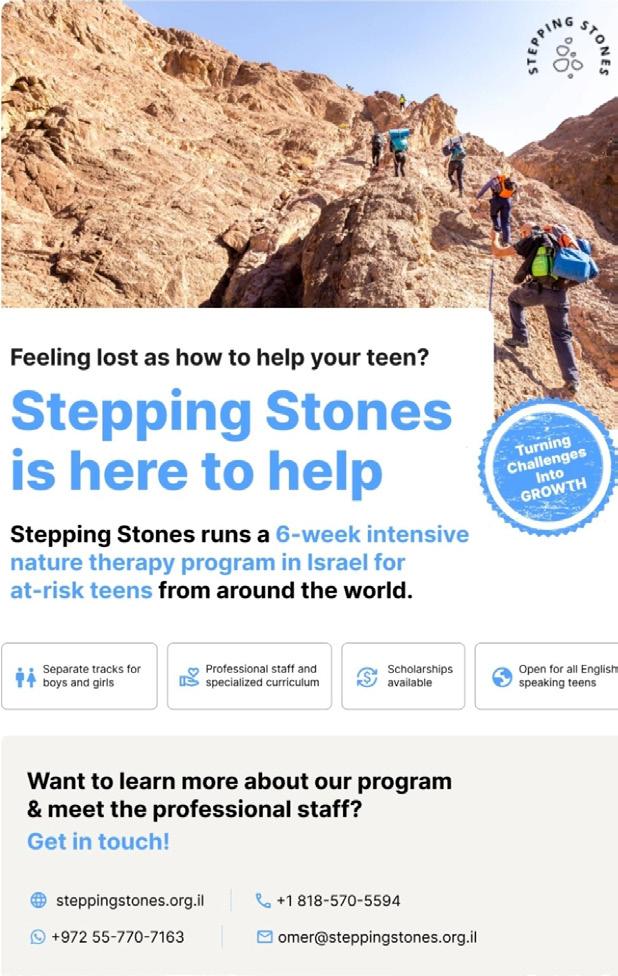





RAV DANIEL MANN
Rav Daniel Mann
Question: My neighborhood has a minyan that begins Ma’ariv of Motzaei Shabbat (=MS) 15 minutes before the time for the end of Shabbat in standard calendars. Considering I don’t remember seeing such minyanim, is it permitted to daven so early? Is it okay for me to join?
Answer: We will start our discussion with the fundamental halachic principles.
One halachic component of Ma’ariv on MS is the tefilla of Ma’ariv, like every night. There are legitimate opinions that one can daven Ma’ariv from plag haMincha (long before sunset – Berachot 27a). However, the more accepted practice (Erev Shabbat may be different) is to wait until the day is over. For some (especially Sephardim), this is from sunset, but it is better to wait until tzeit hakochavim (see Mishna Berura 233:9), which is at least around 14 minutes after sunset, but most communities who wait for tzeit during the week assume it is between 18 and 25 minutes after sunset (not the 35+ minutes for the end of Shabbat). From a tefilla perspective, this is true also on MS.
The issue is the Shabbat element. The need for tosefet Shabbat is not only in the beginning
of Shabbat but also at its end (see Beit Yosef, Orach Chayim 293; Mishna Berura 293:5). However, it is a short time, and the main reason for the significantly later time than “weekday tzeit hakochavim” on our calendars is out of concern, in such a serious matter, that our assumed tzeit hakochavim is too early. Fundamentally, both tosefet and special concern do not apply to Ma’ariv (see Mishna Berura 293:1), and therefore it is permitted according to basic Halacha to daven Ma’ariv a little early.
Does Havdala (Ata Chonantanu) in Shemoneh Esrei complicate matters? The Shulchan Aruch (OC 293:3, based on Berachot 27b) allows davening Ma’ariv toward the end of Shabbat if there is sufficient need. This includes Havdala in Shemoneh Esrei and likely even Havdala over wine (without making the beracha on light or doing melacha). The Maharshal, accepted by many poskim (see Mishna Berura 293:9) objected to davening so early because it looks strange to daven Ma’ariv of MS on Shabbat and because it could confuse people into doing melacha too early. However, we do not find that type of concern to Ma’ariv at a normal Ma’ariv time and when Shabbat is likely over me’ikar hadin. It does not look strange, and the concern for doing melacha is much less of
Eretz Hemdah, the Institute for Advanced Jewish Studies, Jerusalem, is headed by Rav Yosef Carmel and Rav Moshe Ehrenreich, founded by Rav Shaul Yisraeli, zt”l, to prepare rabbanim and dayanim to serve the National Religious community in the Israel and abroad. Ask the Rabbi is a joint venture of the OU, Eretz Hemdah, and OU Israel’s Torah Tidbits.

a problem, at least if Shemoneh Esrei is over only after melacha is permitted.
In practice, though, the codified minhag (Shulchan Aruch ibid. 1; see Mishna Berura 1) is not to daven Ma’ariv before Shabbat is considered out. The Beit Yosef (ad loc.) connects the idea to the gemara (Shabbat 118b) that praises those who extend Shabbat longer than necessary. Let us put the connection in perspective. Davening Ma’ariv is one of the strongest ways to usher in a new day (see Shulchan Aruch, OC 261:4 regarding accepting Shabbat and Mishna Berura 188:32 regarding precluding saying R’tzei at Shabbat’s end). Therefore, besides Ata Chonantanu, davening Ma’ariv ends Shabbat to the extent possible, which somewhat negates tosefet Shabbat. The Pri Megadim (MZ 293:1) presents the same basic idea in other terms: we don’t want it to look as if Shabbat is a burden. There are also minhagim such as stretching out V’hu Rachum (Rama, OC 293:3) and the halachic discussions of perhaps doing Chanuka lights before Havdala (see Mishna

Berura 681:3) to extend elements of Shabbat a little longer.
Therefore, the minyan you refer to is not forbidden, but standard practice and sources view it as against the minhag and distasteful under normal circumstances. When one has a pressing need, it is legitimate to end Ma’ariv at the time one can do melacha, and it is then a good question whether to daven at home or whether a large community should provide a “side minyan” due to the likelihood that there will be enough people with special needs. We do not pass judgment on an individual who takes part or a community that has such a minyan, but it would be unusual for a proper shul to have its main minyan early.

For a Din Torah in English or Hebrew contact:
Eretz Hemdah–Gazit Rabbinical Court 077-215-8-215 • Fax: (02) 537-9626 beitdin@eretzhemdah.org


Mike asks: As an Ambassador, I’m helping someone who values family connections. While dating, they receive many opinions about who is right or wrong for them, leading to conflict between their desires and their family’s wishes. What role does family play in choosing a spouse, and how can I offer guidance?
Aleeza answers: Navigating family influence in the search for love is something we all encounter. Finding the balance between listening to your heart and respecting family opinions can be tricky, but it’s possible to create harmony. Here’s how your friend can approach this delicate balance.
1. Acknowledge Family Values: Family values often shape who we are and what we look for in a partner. Encourage your friend to take a step back and reflect. What traits or values do they admire in their family? Are those qualities something they want in their future partner? At the same time, help them recognize where they and their family may not see eye to eye. For example, if your friend places a strong emphasis on faith or religious observance but their family doesn’t share the same level of commitment, it’s an important difference to acknowledge.
Understanding this gap can help your friend approach their search with clarity and confidence.
2. Start the Conversation: When it comes to family, open communication is key. Suggest your friend have honest conversations about what they’re looking for in a partner. This doesn’t mean a debate — it’s about sharing and understanding. For instance, if their family has specific preferences, like cultural background or career choices, your friend can explain their own goals and look for common ground. These chats don’t need to happen all at once; they’re part of an ongoing dialogue.
3. Set Healthy Boundaries: Family advice can be helpful, but it’s essential for your friend to remember that their voice matters most. While it’s good to listen with an open mind, their thoughts, feelings, and experiences in the relationship should ultimately guide their decisions. Encourage them to appreciate family input but also to politely establish boundaries. They’re the ones building a life with their future partner, not their family.
4. Find Family Allies: Every family has those who “get it.” Encourage your friend to lean on siblings, cousins, or other relatives who share their perspective. These allies can offer support and even help communicate their views to others in the family. Having someone in their corner can make navigating tougher conversations much easier.
5. Focus on the Bigger Picture: At the
end of the day, it’s about building a strong, lasting relationship. Help your friend keep their eye on the long-term vision: a life filled with shared values, mutual respect, and love. Remind them that while family opinions matter, they’re just one piece of the puzzle. The right partner will complement your friend’s goals and dreams—family support will follow in time.
Balancing family influence and personal choice takes thoughtfulness and courage. May your friend stay true to their heart while still honoring their family’s input, creating a love story that everyone can celebrate.
Founded in Israel in 2019 and led by Rav Rimon, Shagririm Balev - a social online matchmaking initiative - has taken the dating scene by storm. With over 10,000 candidates and 3,000 Ambassadors, in Israel and the US, Shagririm Balev is averaging a Wedding every 2 days!
Want to set up your friends? Become their ambassadorjoin Shagririm Balev!


en.shagririm.org.il 0585323242


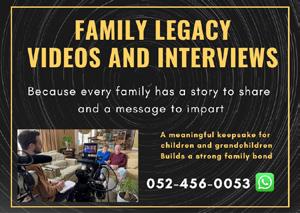






Old Katamon 7,500,000 NIS 190 SQM on one level Orit 050-3362306 Baka 3,290,000 NIS 3.5 R building after Tama Nahum 050-7225694 Arnona 4,300,000 NIS 2 apts of 100 sqm, can be connected, 1st floor, accessible Nahum 050-7225694 Old Katamon 4,500,000 NIS 3R garden apartment Rachela 052-6503348





www.angelrealty.co.il
For Sale in Jerusalem
Ramot B: 8 room cottage with option, stunning view
4.990.000 NIS
For Sale in Efrat Dekel: Spectacular 539m² Home ! Features a grand master suite with built-in closets and jacuzzi. Stunning kitchen, spacious dining, and living areas with breathtaking views. Attic includes three bedrooms. Two rented basement units offer great income potential.
8.900.000 NIS Gabi- 0524588716

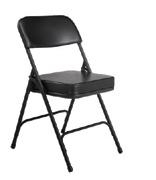

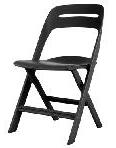

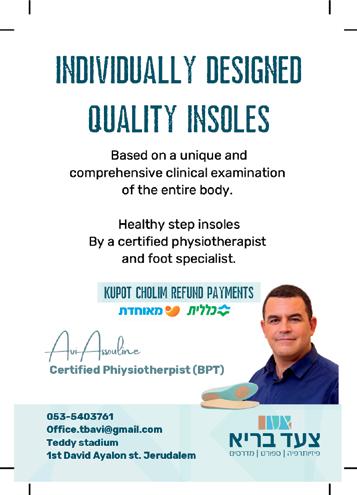

TORAH TIDBITS CONTRIBUTOR
I am constantly striving for growth. But sometimes this constant effort can feel like a battle between the person I am and the person I want to be. Between the parts that I feel are helpful and good and the parts I wish I didn’t have.
Hashem’s interaction with Moshe Rabbeinu at the Burning Bush offers a dimension of healing for this mindset.
By the time Hashem calls to Moshe at the Burning Bush to charge him with the mission of bringing the Jewish People out of slavery, Moshe had already run away from Egypt and from Pharaoh’s palace and become a shepherd for his father-in-law’s sheep. At the Bush, Hashem had to spend seven (!) days convincing Moshe to take the job. Moshe simply did not believe that he could do it and he tried desperately to refuse.
Great opportunity to buy in a New Building starting construction in Arnona close to Baka: Great prices and the price isn't linked to inflation!
For Sale in Neve Yakov, Moshe Sneh street: Spacious 3 rooms, renovated, A/C, 3rd with views, next to a large park and Shul, 1.79m NIS
Last 2 room unit in a Great New Building in Mekor Chaim: 50m + 8m meter mirpeset. Occupancy in 4 months! Only 2.15m NIS
There is a phrase right at the beginning of this life-changing meeting that illustrates an amazing idea. When Hashem called to Moshe the first time, he said “Moshe Moshe.” (Shemot 3:4). This type of call, a “double-name call,” happens three times in the Torah: to Avraham Avinu, Yaakov Avinu and Moshe Rabbeinu.
In all three cases, the “double-name call” signals a turning point, a new role, a greater mission and a deeper connection to The Master of the Universe. Chazal tell us that the “double-name call” is a sign of love and urgency- an expression of both Hashem’s belief in that person and the importance of the task with which He is entrusting them.
I want to suggest another dimension to this concept.
When Hashem said “Moshe Moshe,” He called to all the parts of Moshe- the prince who stood up for slaves’ rights and the shepherd who ran away from public life, the man who would become the greatest prophet ever and the one who didn’t believe in his own abilities. He was, in a way, unifying the various aspects of Moshe Rabbeinu into one.
The “double-name call” helps us understand that all of the parts are essential. Hashem was saying to Moshe, “I know all of
you, I put all of these aspects into you, and I gave you the strength to utilize all of them in your service to Me and the world.”
The “double-name call” represents the concept of unifying the various parts of ourselves, the ones we like with the ones we less like, and using them all to pursue our mission in this world. When we connect ourselves to The One Who Created Us and see ourselves through His lens, we can understand that each character trait is an essential piece of the puzzle. Working on ourselves doesn’t have to feel like a war but rather an adventure in which each character trait reveals its infinite potential and becomes part of a greater whole.
I bless us to tap into the concept of the “double-name call” as part of our spiritual legacy. To understand that when Hashem called to Avraham Avinu, Yakov Avinu and Moshe Rabbeinu in this way, He also imbued within each one of us the ability to see ourselves fully and to harness all of our various parts in a loving and gentle way towards positive growth and deeper connection. May we feel how much Hashem loves and believes in us and be energized by the sense of urgency He feels for the world to receive what we have to give.

Prime Location in the German Colony HaTzfira Street
For Sale: Ben Maimon, 4 rooms, 113m, 2 bathrooms, porch, 1st floor, elevator, 6.2 million NIS
A boutique Tama 38 project set to be completed within 30 months, offering an exceptional living experience in one of Jerusalem’s most desirable neighborhoods. Highlights Include: � Spacious 3 and 4-room apartments, all with Sukkah balconies and storage � A luxurious penthouse with nice space and terraces. � Private parking and high finishes. � Ideally located close to cafes, shops, and cultural attractions.
Smadar 050-3114040 // 02-642-4329 smadi_bida@walla.co.il

For more details, please contact Trust Real Estate Smadar - 050-3114040






Shoshana teaches Chassidus for the Shirat David Community in Efrat as well as in Jerusalem for Midreshet Rachel v’Chaya and Shiviti Women’s Institute. She is a guide in Poland with JRoots and co-leads inspirational trips to Ukraine and around Eretz Yisroel. Shoshana has also been a guide at Yad Vashem since 2014.





OU ISRAEL FACULTY
ד"סב
Following Rav Simlai’s Talmudic statement that the Torah taught to us by Moshe Rabbeinu consists of 613 mitzvot, the midrash relates that successive prophets arose and progressively decreased the number. David HaMelech established these 613 on eleven principles, Yeshayahu came along and reduced the number to six, then Micha, Yeshayahu’s younger contemporary, further reduced the number to three: ,טפשמ תושע ךָיקלא
תבהא - Do justice, love kindness and walk modestly with your G-d. According to the gemara, Yeshayahu later revised his reduction to two principles and Amos then further decreased them to one. The Midrash Tanchuma omits Yeshayahu’s revision and credits Amos with abridging the principles to two, citing a different proof text than the gemara. Both versions conclude with Habakuk establishing the entire Torah on one principle: היחי
, a righteous person lives by his faith.1
Why would the prophets have wanted to minimize the number of mitzvot? The question is intensified when we realize that the statement in the Mishna that prompted Rav Simlai’s teaching was: תא

- HaKadosh
Baruch Hu wanted to confer merit upon Israel, therefore He increased for them Torah and mitzvot.2 If Hashem bestowed a multitude of mitzvot upon us in order to increase our merit, what could possibly have motivated the prophets to decrease their number?
Rashi explains that the generation that received the Torah from Moshe Rabbeinu was so righteous that they were able to accept the yoke of multitudinous mitzvot. As the generations progressed, the people grew increasingly spiritually weak and it became impossible for anyone to keep all the commandments. The prophets sought to ease the burden to enable their generations to achieve righteousness.3 Rav Yosef Albo elaborates that the principles established by the prophets were general categories that included all of the mitzvot, not mitzvot in and of themselves. The goal of the prophets was to make the mitzvot more accessible by creating categories everyone could relate to. Most reasonable people would agree that kindness is a virtue.
By accepting upon oneself the general dictum to act kindly with others, one would begin to observe more and more specific commandments. Through perfecting one’s character, one becomes more and more Torah observant. Habakuk, who struggled with the question of why the righteous suffer while the wicked prosper, taught that the
righteous should focus on building their faith in Hashem’s promises of future reward and punishment. Living with this faith will enable them to tolerate seeming injustices in this world that otherwise interfere with religious observance.4 The Maharsha explains that Emunah is the broadest category, inclusive of all mitzvot, since faith lies at the foundation of fulfilling the commandments.5
The Chafetz Chaim records that he was asked why, if there are so many indicators that the messianic era is at hand, Mashiach has not yet arrived. He explained with a parable: A prominent man was marrying off his son, and invited many dignitaries along with his close friends and relatives to the wedding. Knowing that many of the guests would be glamorously attired, he made sure to give special instructions to those of his guests he thought might be embarrassed if they were not told to dress especially well for the event.
So too Hashem is giving us the opportunity to clothe ourselves in mitzvot as the time for Mashiach draws near, that we might avoid embarrassment when we greet the Shechina at the time of the Geulah. He suggests that we begin by learning Torah daily, and in keeping with the teaching of Habakuk, reciting the thirteen principles of faith at the end of Shacharit each day.6
Perhaps by beginning with the teaching of Habakuk, then working backward to increase our merit through the teachings of Amos, Micha, Yeshayahu and David, we will develop our spiritual strength and become elevated to a higher level of mitzvah observance, and thus become worthy of the ultimate redemption,
Mrs. Leah Feinberg is a master educator who taught at the SKA High School for Girls in Hewlett for twenty-one years, also serving as Tanach Department chairperson and New Teacher Mentor. Leah is currently on the faculty of the OU Israel Center and has taught in all three cycles of the OU Women’s Initiative Nach Yomi program
In the OU Women’s Initiative Nach Yomi series, currently in its third cycle, women scholars deliver a daily shiur on the books of Prophets (Neviim) and Writings (Ketuvim) at the pace of a chapter a day. Shiurim are geared toward learners of all levels who would like to participate in the twoyear Nach Yomi study cycle. Visit the OU Women’s Initiative to register for additional content.




EXCITING TRIPS, CHESED ACTIVTIES AND TIYULIM DAILY BEIT MIDRASH LEARNING AT THE YESHIVAT HESDER HAGOLAN

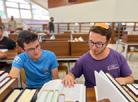



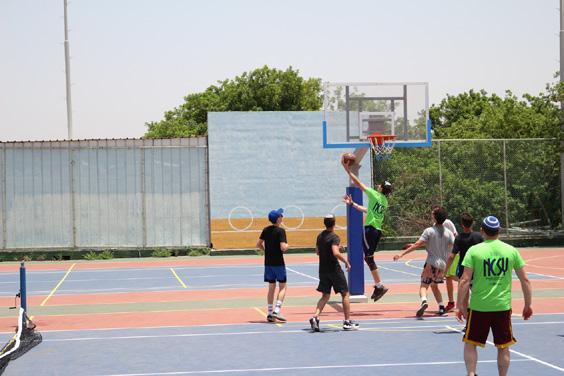


“PUT YOUR BEST HAND FORWARD”?
In this week's Parsha, we follow the beginning of Moshe Rabeniu’s story. For the first three months of his life Moshe remained hidden in his family’s home, until hiding him became impossible. It was then that Yocheved took her precious son, packed him neatly in a basket, and set him near the Nile’s edge, eventually to be found by Batya, Pharaoh's daughter.
התמא־תא חלׁש תו ףוסה ךָותב הבתה־תא
“She spied the basket among the reeds and sent her maidservant to fetch it.”
Rashi explains that though התמא directly translated means maidservant, in this case it should be interpreted as her hand. She reached out her hand and miraculously it stretched out to meet the basket in the distance.
Batya extended her hand immediately upon seeing the basket, not knowing or expecting the extraordinary feat that would allow her to reach the basket. She took action toward what she believed was right, stepped toward her goal, without worrying about whether it was attainable or how she would reach it on her own.
There are so many moments in our lives that cause us to question our abilities and the
probability of achieving our goals. Today’s practical mindset, while helpful at times, blinds us to our own inner strength and the power of simple hishtadlut. We can learn from Batya to push through that doubt and take the first step. We must put forth our best efforts and after that our job is simply to trust that Hashem will take it from there.

In this week's parasha, we read about what happened when the Jews were enslaved in Egypt. Today I want to focus on one person— Moshe. Moshe was such an incredible leader, and we can learn a lot from him.
At the beginning of his mission, Moshe didn’t feel like a leader at all. When God told him to go to Pharaoh and demand the Jews' freedom, Moshe was unsure of himself. He didn’t know what to say or how he would do it. He was scared and hesitant, probably feeling way out of his comfort zone. But God reassured him, saying, "ךָמע היהא־יכַּ" — "I will be with you."
This is such a powerful message because it shows that Moshe didn’t need to have all the answers. What he needed most was to trust that God would be with him and help him through it.
As we read on, Moshe grows into his role as a leader. Even though he was nervous at
first, he learned to trust God and his own abilities. He became the person who led the Jews out of Egypt, through the plagues, and to freedom. This didn’t happen because Moshe was perfect, but because he trusted in God's presence and guidance.
So, what does this teach us? Moshe’s story teaches us that leadership doesn’t mean you have to have everything figured out from the start. You don’t have to be super confident or know exactly what to say. What really matters is trust—trust in yourself, trust in others, and trust that God is with you every step of the way.
In our own lives, we all face moments where we feel unsure or nervous. Whether it’s taking on a big responsibility, speaking in front of a crowd, or dealing with a tough situation, we can remind ourselves that we don’t have to do it alone. Just like Moshe, we can rely on God’s support.

CITY CENTER – 2 rooms, Savyon view, luxurious, furnished, Shabbat elevator, concierge
2.870.000 NIS MENDEL 052-8980111
In the heart of calm and pastoral BAKAPrivate arab house, 6 rooms, 500m + possibility of building 250m, huge garden, approx. 700m, completely renovated, underfloor heating + a/c, large parking, 5 bathrooms, 5 toilets, green MENDEL 0528980111
GERMAN COLONY - House, 7 rooms, 260m + 175m private garden + 100m rooftop, calm and pastoral, parking, storage
18.200.000 NIS MICHAEL 052-3202488
BAKA - New penthouse, 4 rooms in a small luxurious building with character, alone upstairs, 3rd floor + elevator, 4 orientations, 3 toilets, 2 bathrooms, terrace / sukkah, 70m, parking, store-room
5450000 NIS MENDEL 052-8980111
CLOSE TO BAKA - New apartment, 4 rooms - 4550000 NIS, 5 rooms - 5380000 NIS, balcony, elevator, storage, parking MICHAEL 052-3202488
MOSHAVA / In a building after TAMA 38, new apartment, 4 rooms, 3rd floor + elevator, balcony/partial sukah, opened sight, 2 bathrooms, calm, parking
MENDEL 052-8980111
BAKA - 4 room apartment, 90m in advanced TAMA 38 will be 5 rooms + balcony and parking 3.600.000 NIS MICHAEL 052-3202488
BAKA / MEKOR HAIM - 4 rooms, 90m, 2nd floor + elevator, completely renovated, fireplace, a/c, gas heating, very central, close to all amenities
MENDEL 052-8980111
Near Arnona Hatzaira, in a step building, very large 5-room apartment + balcony/sukkah,

and more, 4 bathrooms, garden, parking MIKAEL 052-3202488
Starring: David Golinkin, Lior Berlin , Dovid Spinrad, Esther Eisenberg, Yedidya Fraiman, Hank Shrier, Refael Hileman, Shirel Stern, Eddie Geller
“…[a] pull-no-punches excoriation of the Roosevelt Administration’s reluctance to shelter Eastern European Jews before and during WWII…A fascinating and underreported story.” - New York Sun.
ARNONA HATZEIRA - Very spacious penthouse, 120m, 4th floor + elevator, huge terrace / succah, 75m, open view, 2 parking spaces, cellar, 3 toilets, quiet, completely renovated, immediate entrance
Tickets: theatrezion.co.il or 02-630-3600
MICHAEL 052- 3202488












